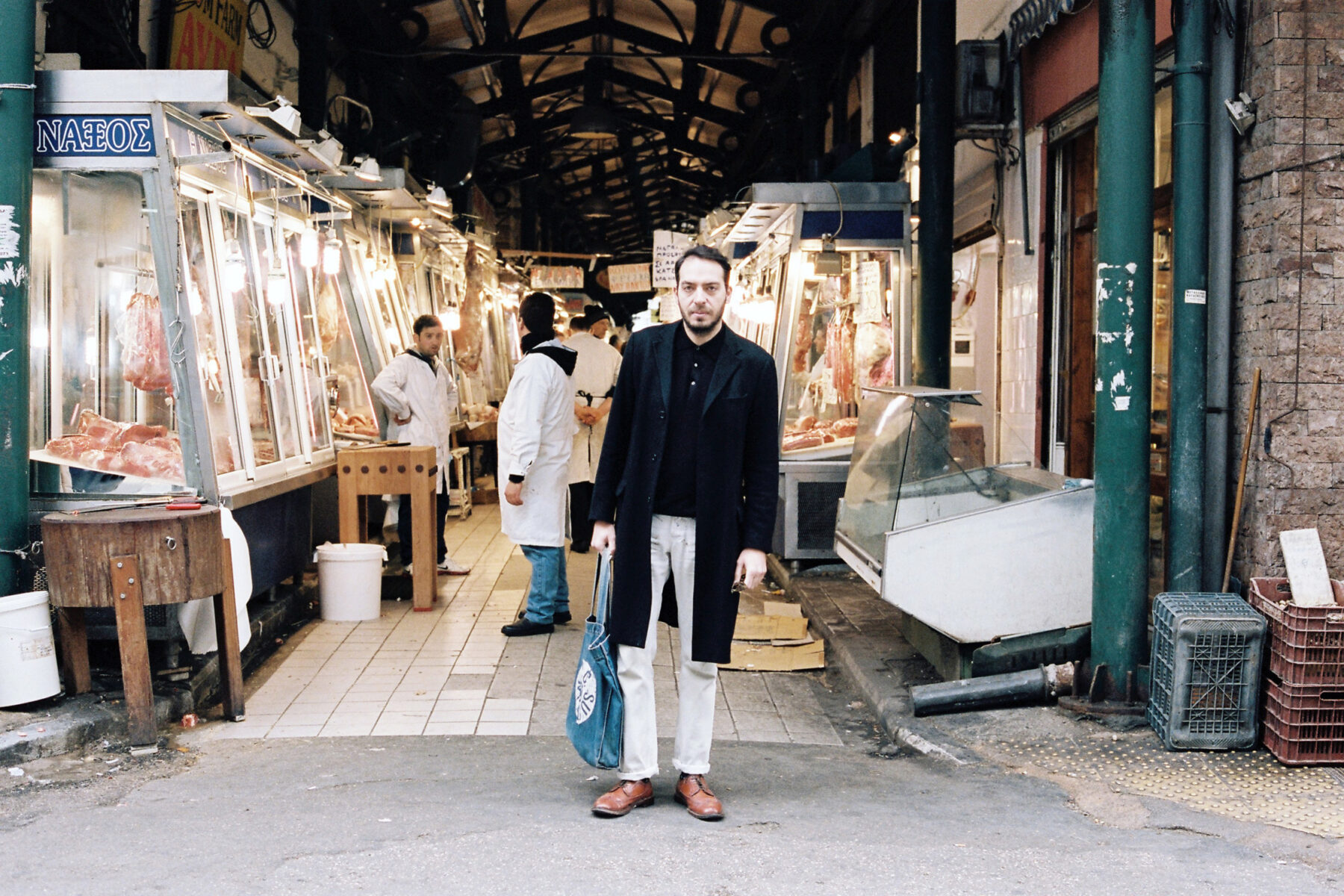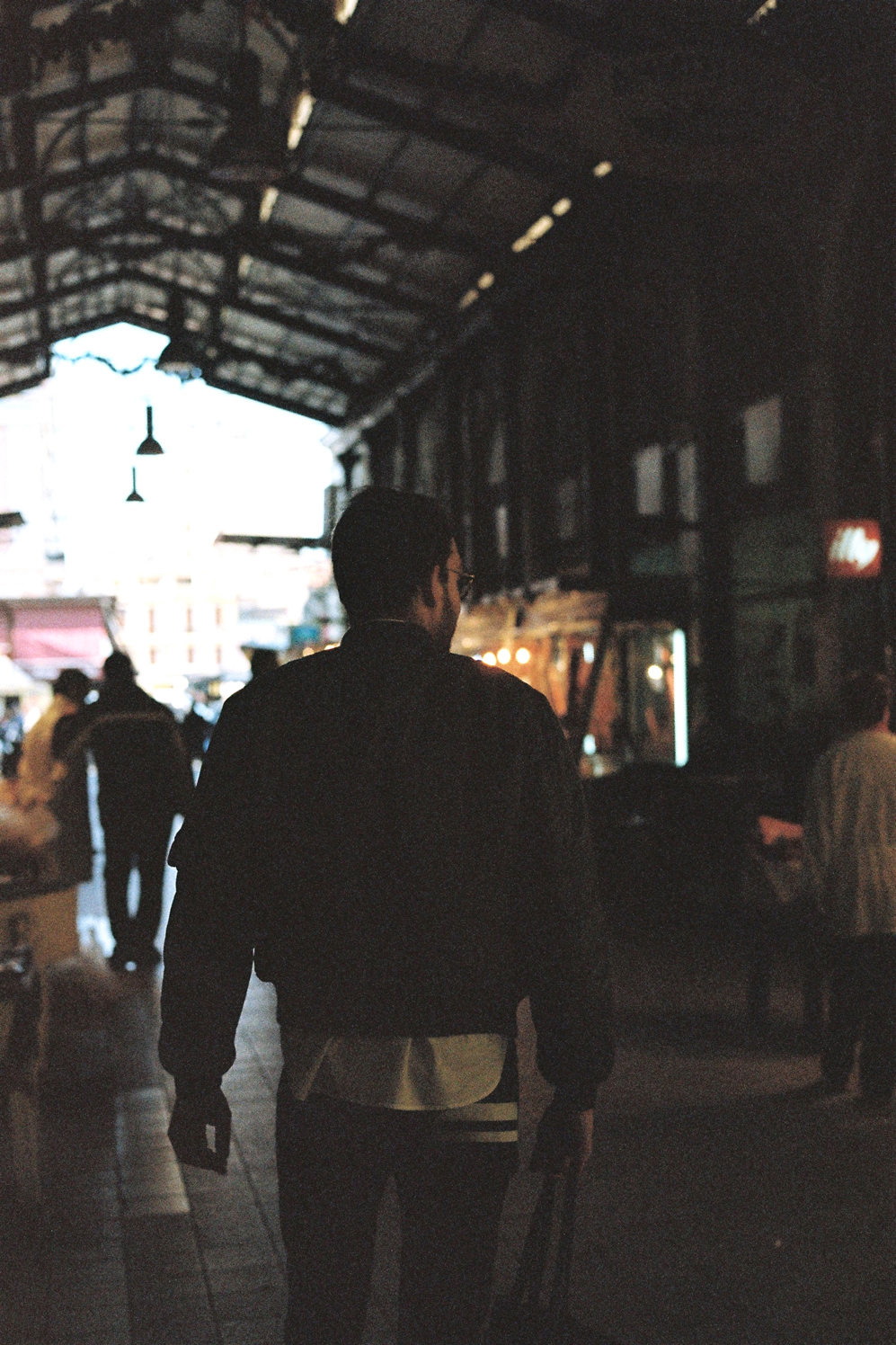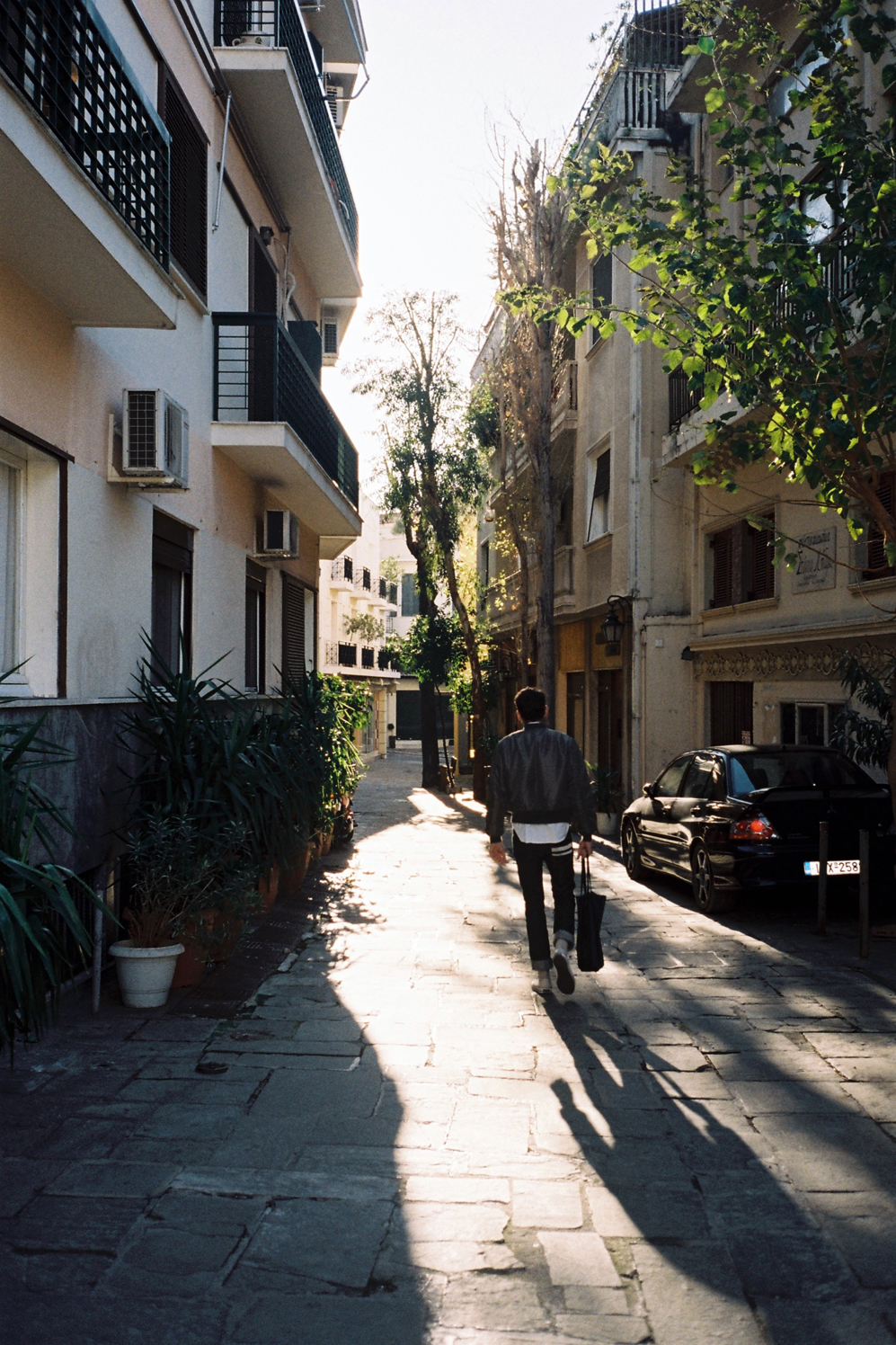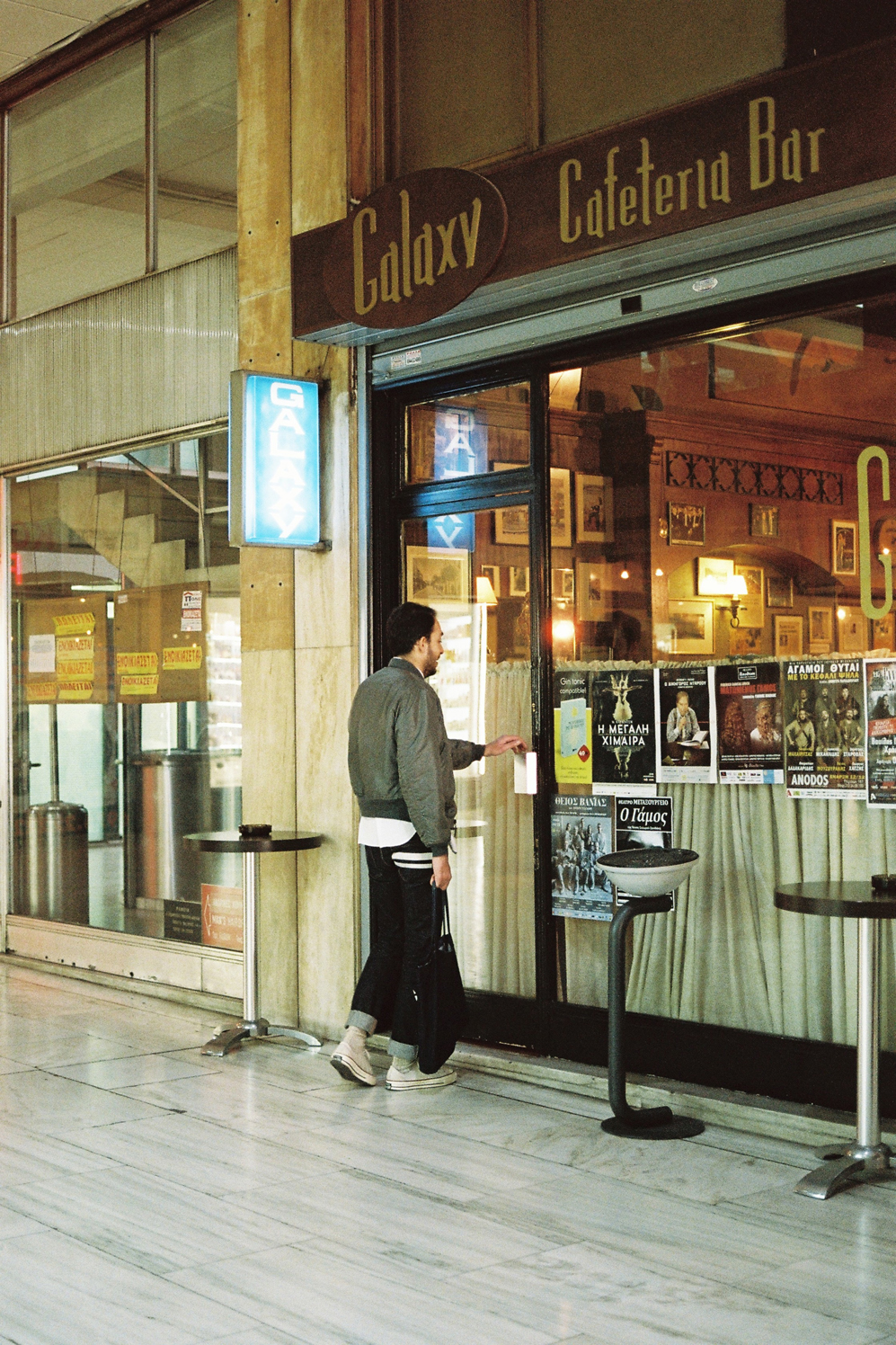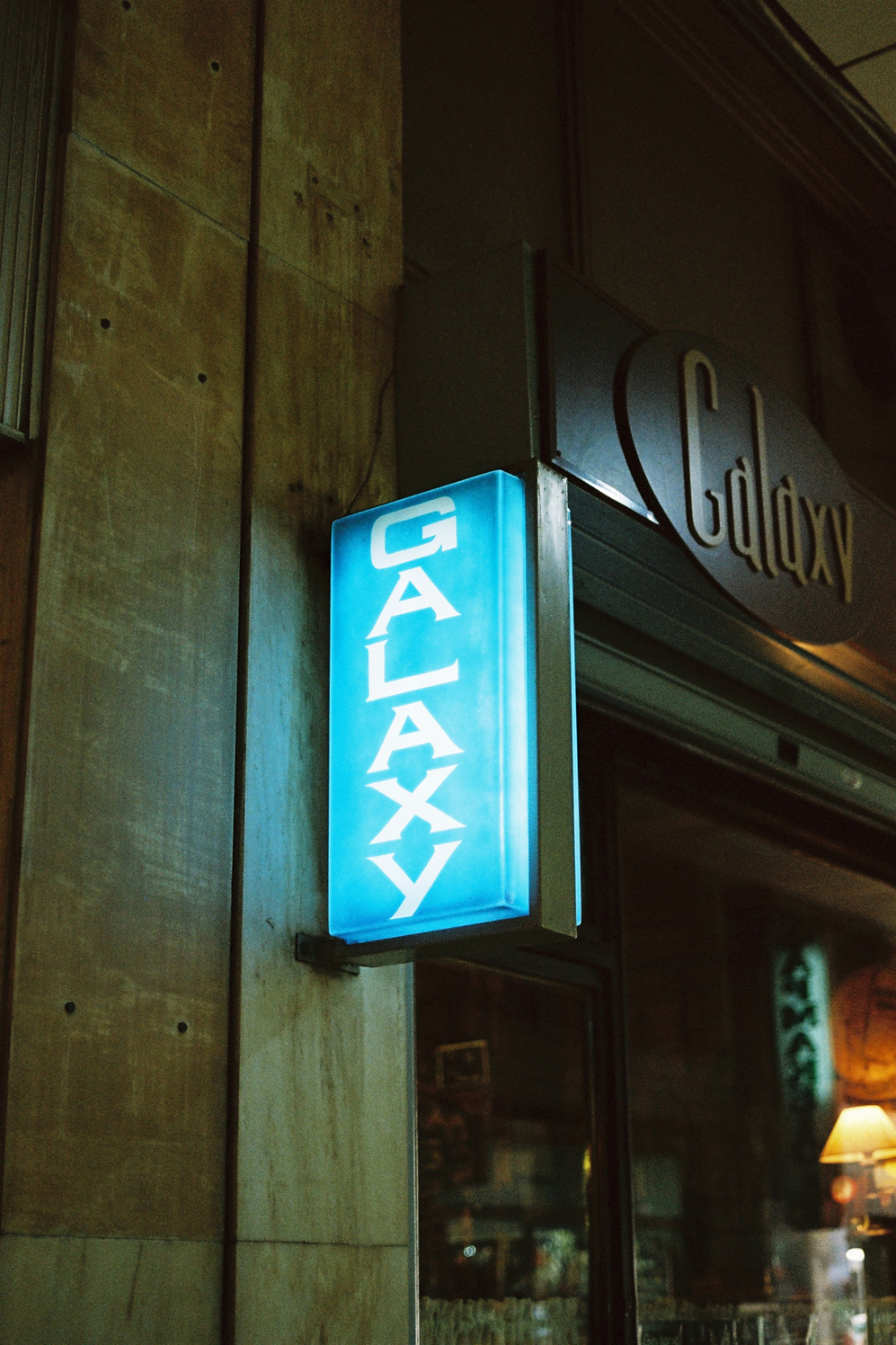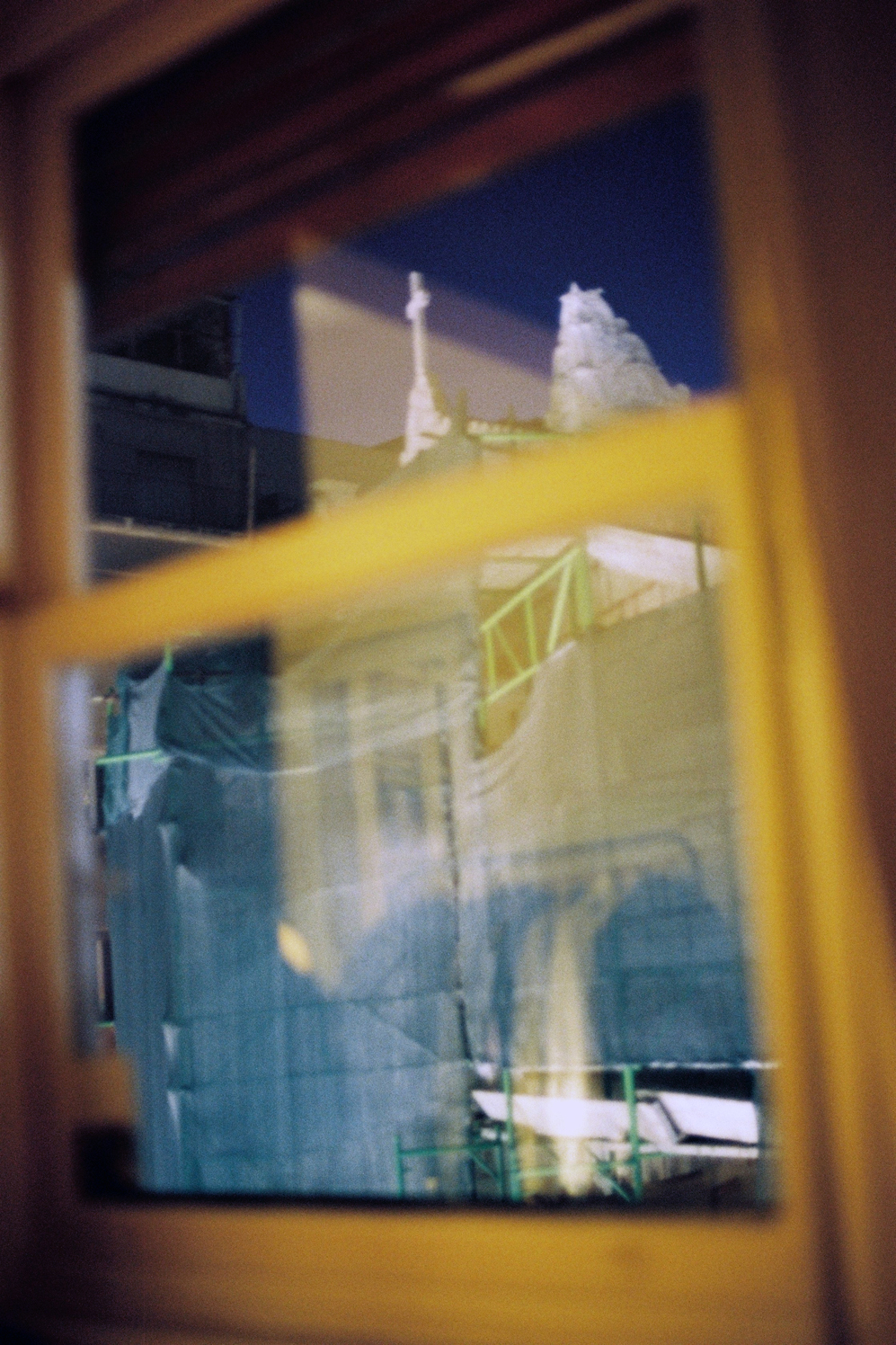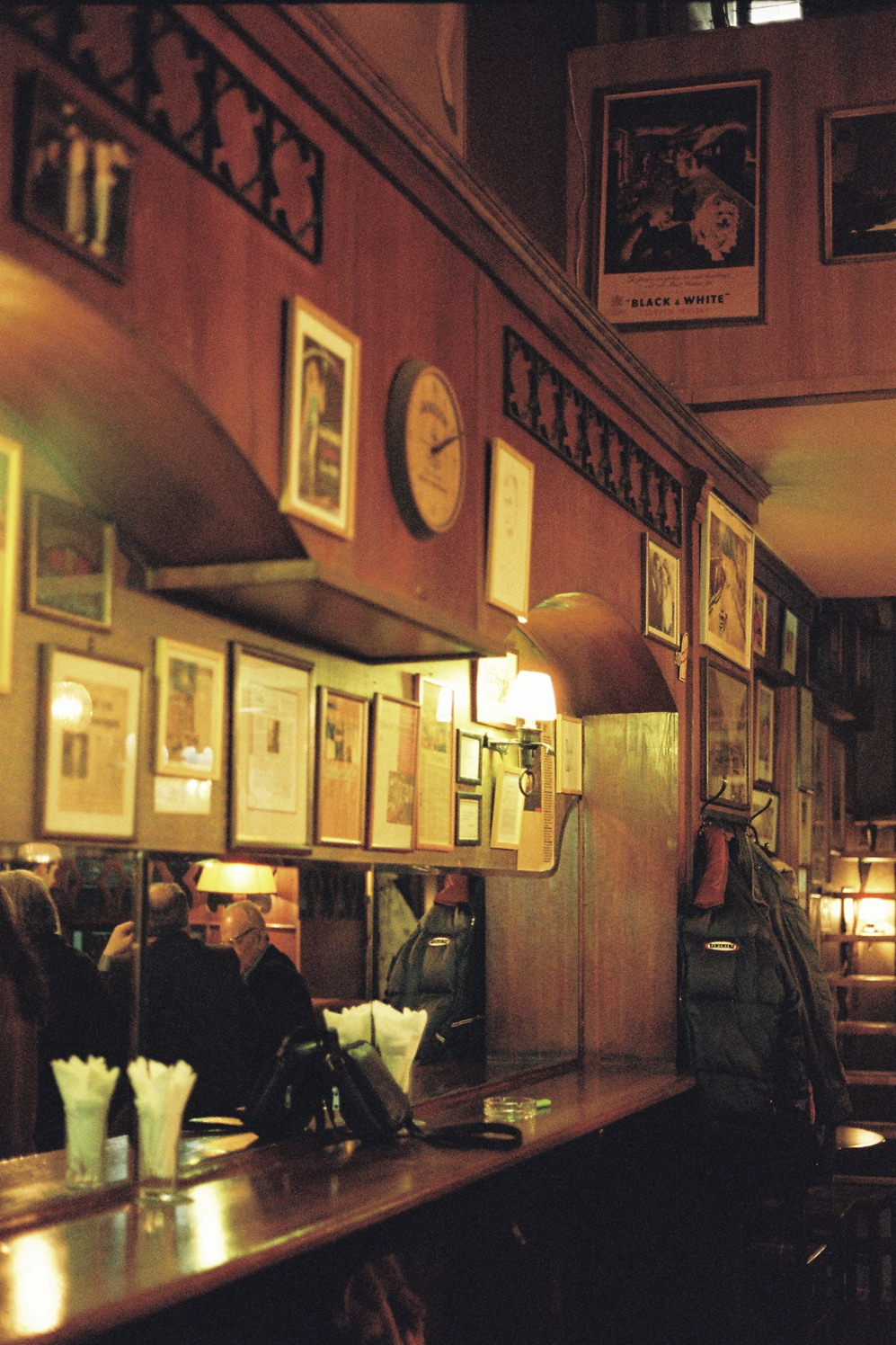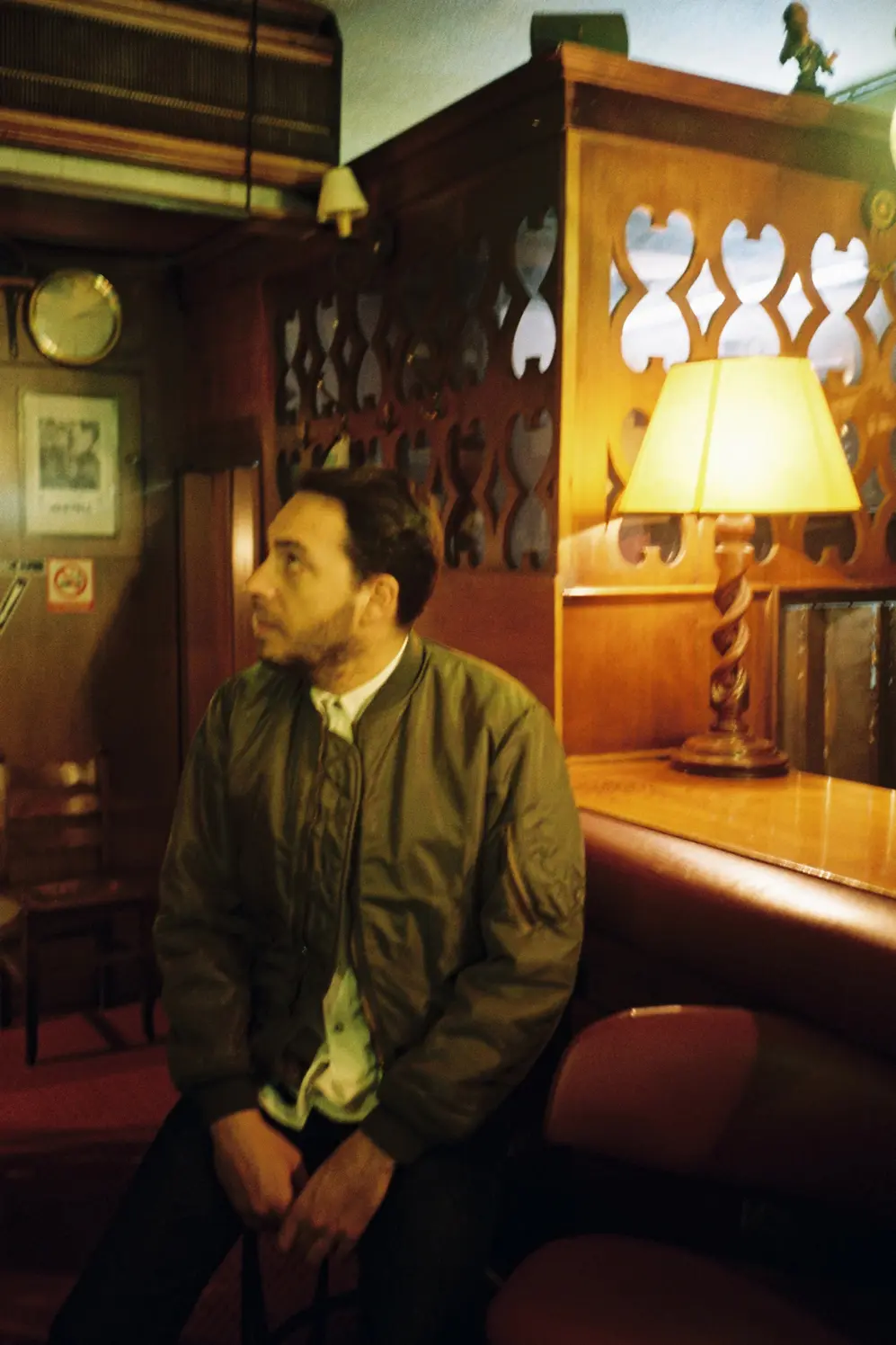Chris fished for his keys, trying to find the right one for the rail door leading to his building. All around us, newsstands and small shops were closing their shutters one by one, preparing to call it a day.
On my way there, I witnessed the transient moment of streetlamps lighting up, signifying the official passing of the day and start of the evening; a fitting time for meeting a child of the night. Behind the bars of the metallic gate, you could make out a long corridor and in the back there was a shop selling women’s bath robes and nightgowns – one of those very particular and outdated establishments one comes across in various nooks and crannies of central Athens. Its fluorescently lit sign glistened on the mosaic floor while headless mannequins in vibrant attires made note of our presence inside the 1920s post war era building.
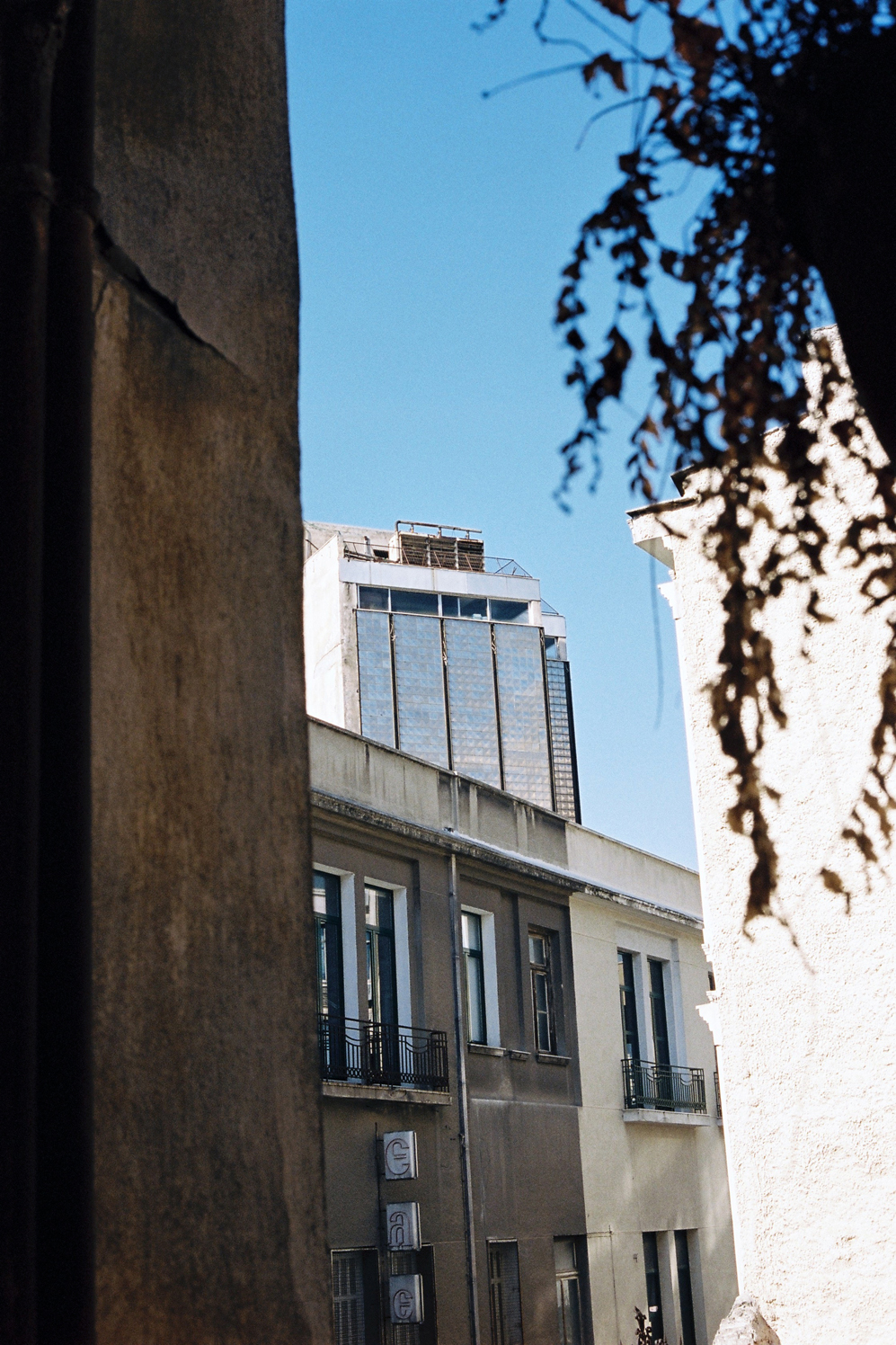
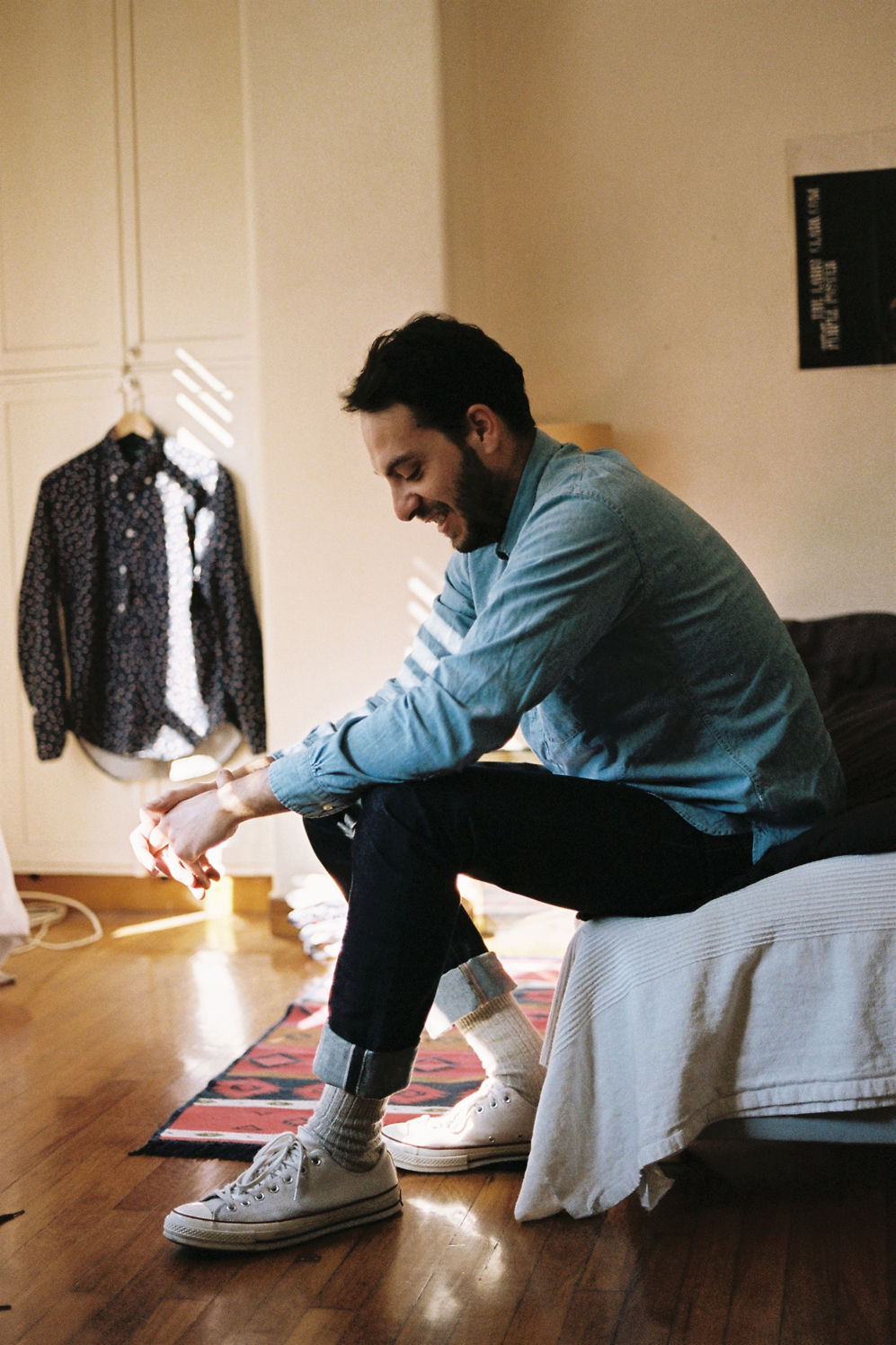
“Have you ever seen an entrance like this?” Chris asked excitedly; proud of the strange precursor to his dwelling. “Most people are baffled and wonder where my flat is.” We made our way towards the shop but turned right for the staircase before reaching it. The sound of our steps up the ladder were followed by slightly awkward chit-chat; as one does during first meetings, when even brief silences need to be overturned. The process of entering Chris’ apartment felt like some sort of rite of passage, not an intimidating one, but rather a way of being granted green card to a friendly environment, an intimate world. “This is my island,” he said after opening the door to his apartment, “I’m the only one living in this entire building. Just my flat and the robe shop’s storage space. No neighbors, nothing. I only see the owner of the shop whenever I come and go. We’ve become friends in a way and routinely discuss Greece’s economic situation.”
Chris Kontos is the publisher of Kennedy, a biannual periodical that’s cleverly devoid of thematic constraints and therefore works as a manifesto of everything he likes and finds influential; be it people, places, literature or photographic essays. Deriving from a blog Chris used to maintain, the magazine reads like a chronicle of encounters and an amalgamation of interests. “It’s a creative outlet that encapsulates my entire aesthetic identity. It’s a sort of evolution of my blog; the only tool I had for escaping the staleness of my job as a photographer back in the day.”
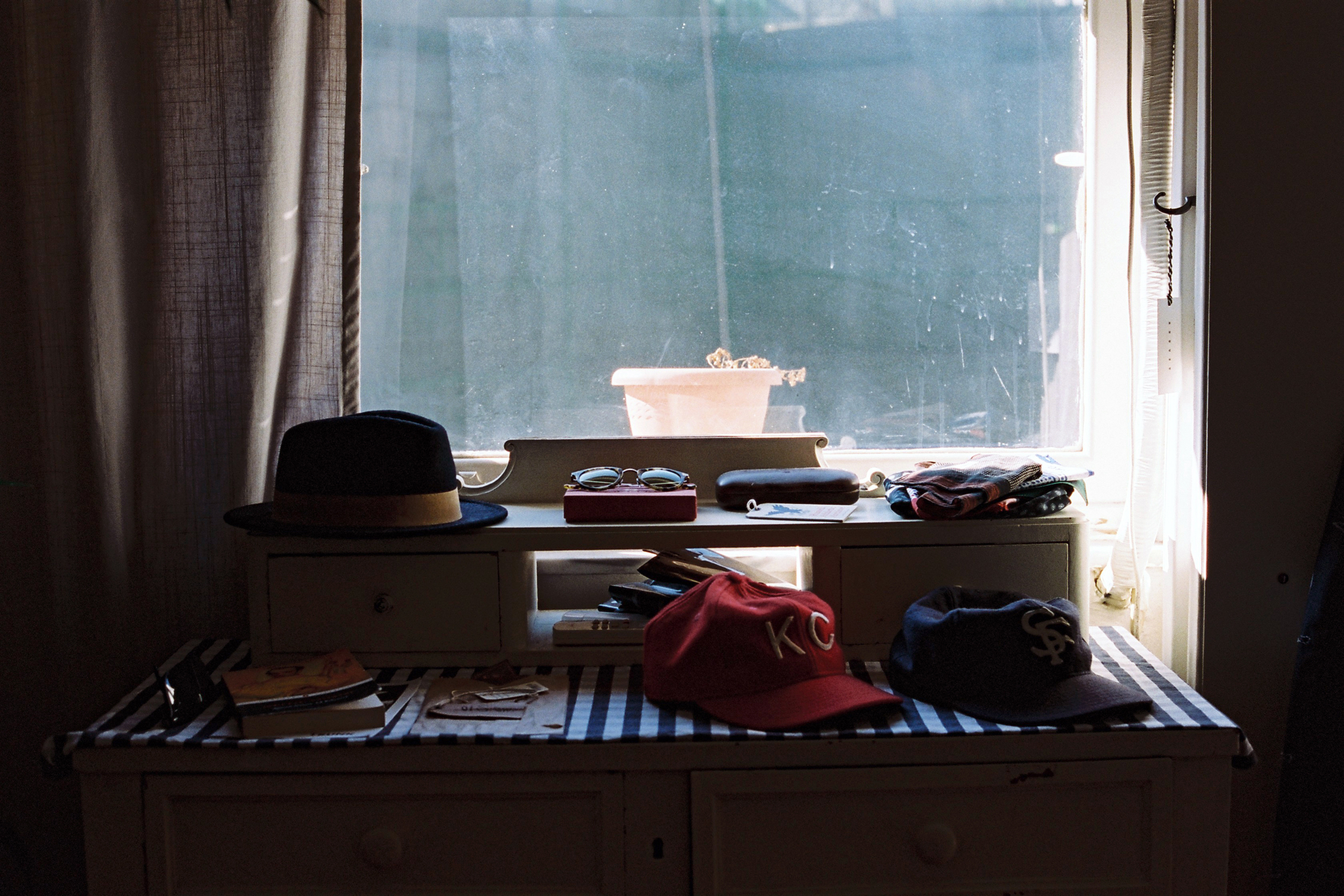
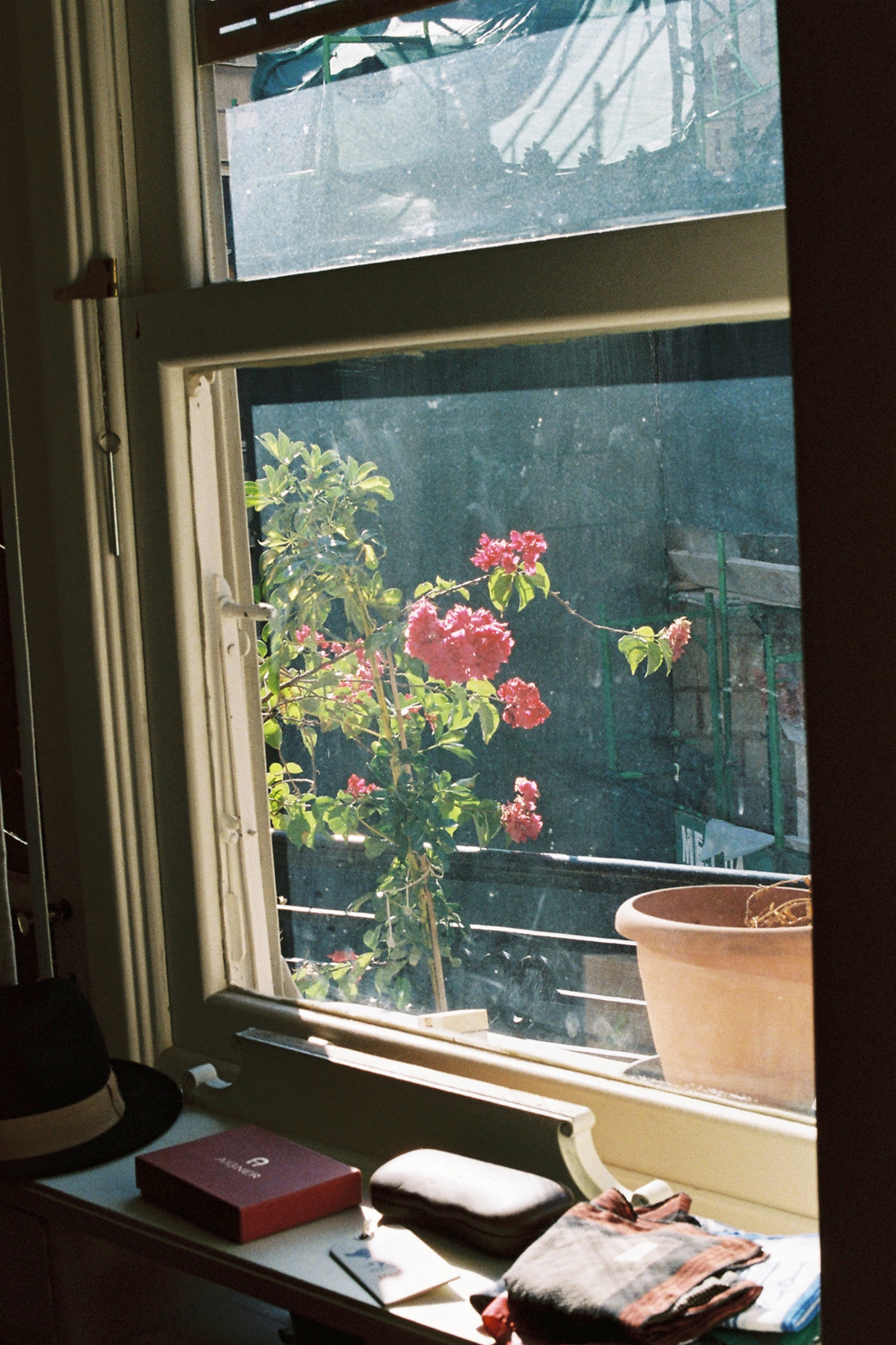
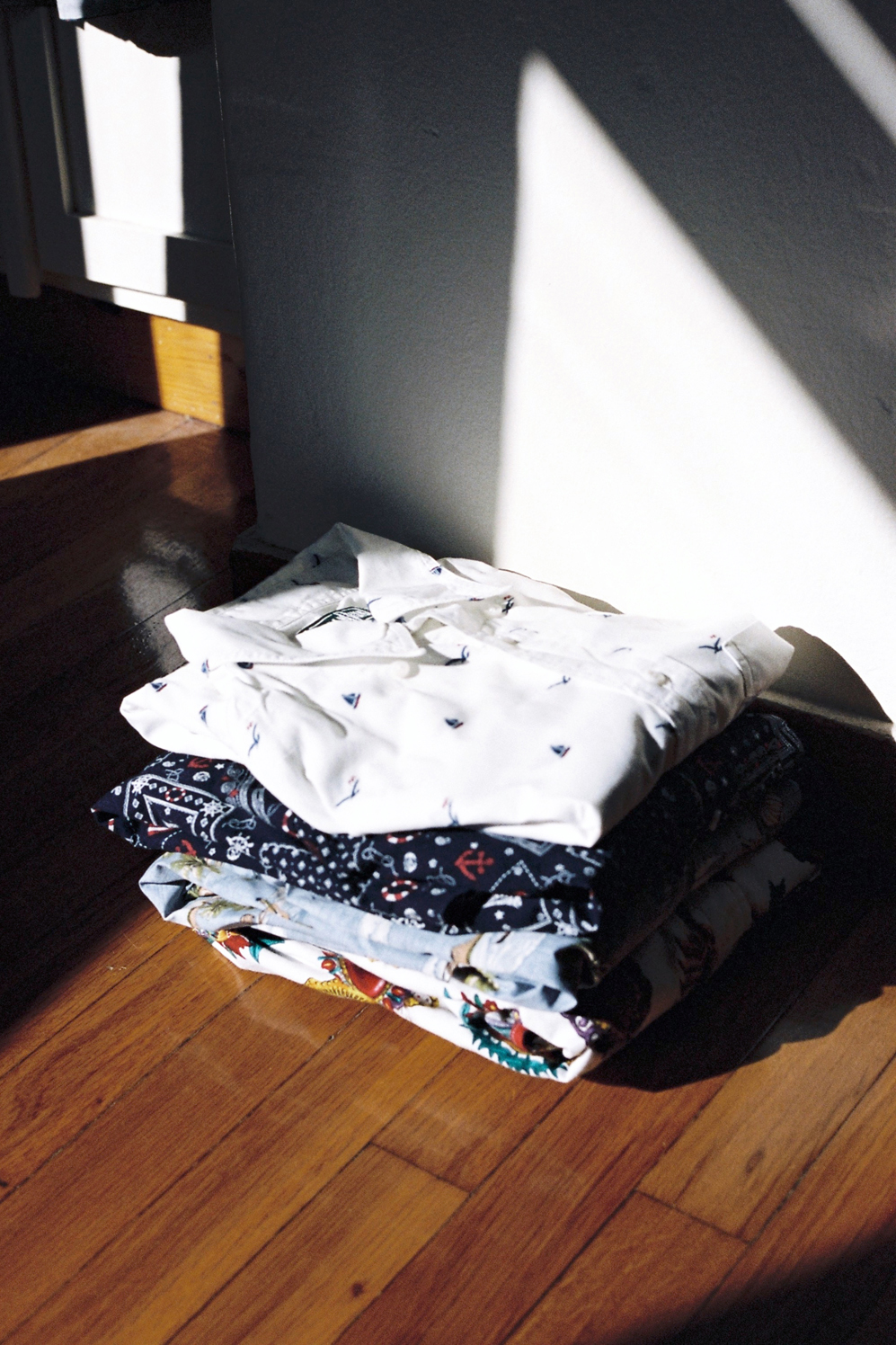
Undoubtedly, seeing ‘Kennedy’ on the cover makes one wonder about the choice of the name and the possible meaning behind it. “It’s funny, this is the most popular question I get concerning the magazine. Actually, for some reason, ‘Kennedy’ was the first and only name I thought for the magazine. There were no alternatives. I simply followed a hunch. The British band Wedding Present had a song named Kennedy back in the early 90’s, a period that has greatly shaped my musical taste, and perhaps that has something to do with it. Although quite an irrelevant choice for that particular song, I thought it was really appropriate for the project I had in mind. Also, more than that, it was incredibly catchy. As for the connotations it comes with, I guess that a lot of them apply to my idea behind the magazine. I wanted to do something that carries a strong identity, something timeless, a publication based on classic American magazines like National Geographic. Combined with my healthy obsession for the Kennedys, I think you quite get the idea behind the name.”
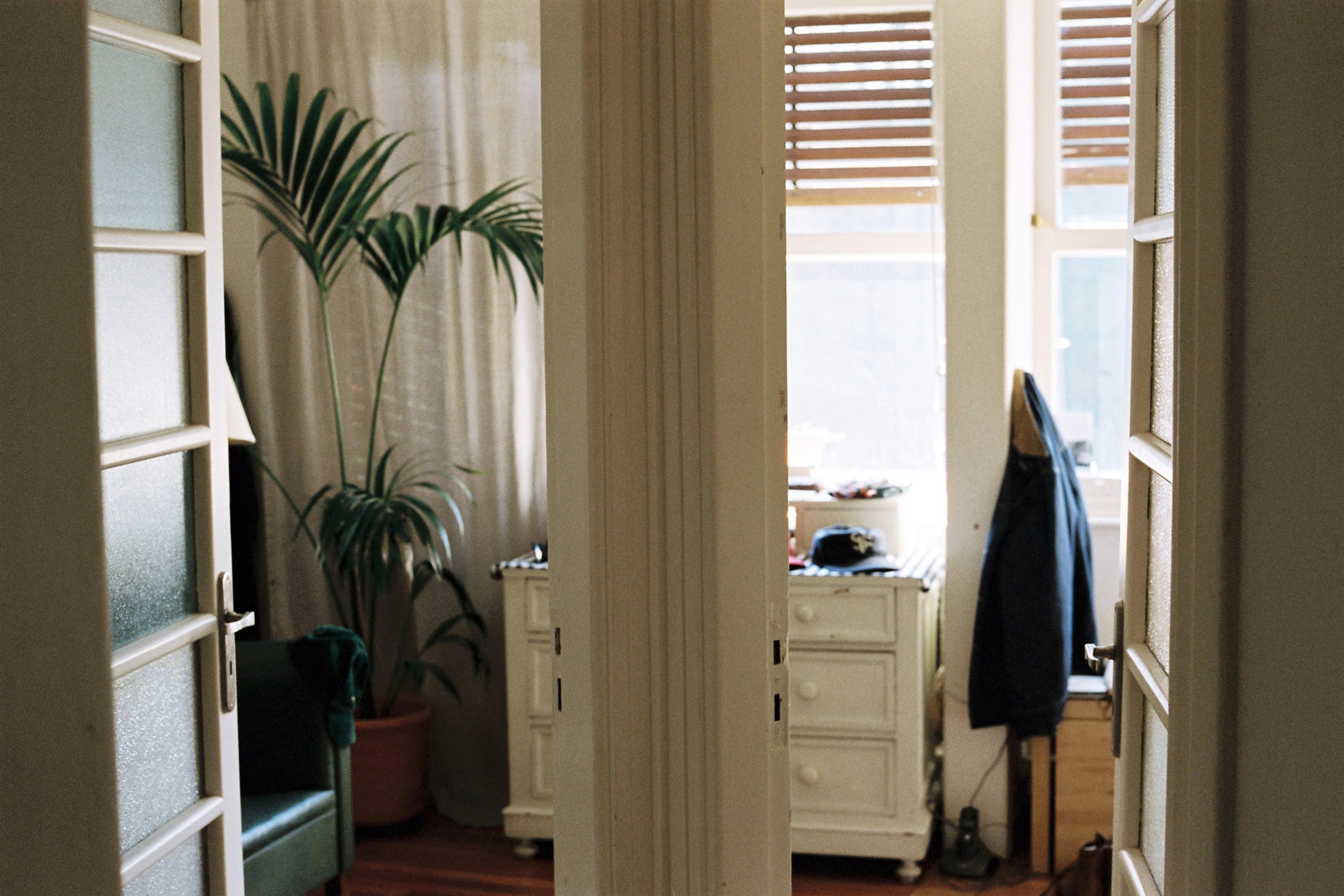
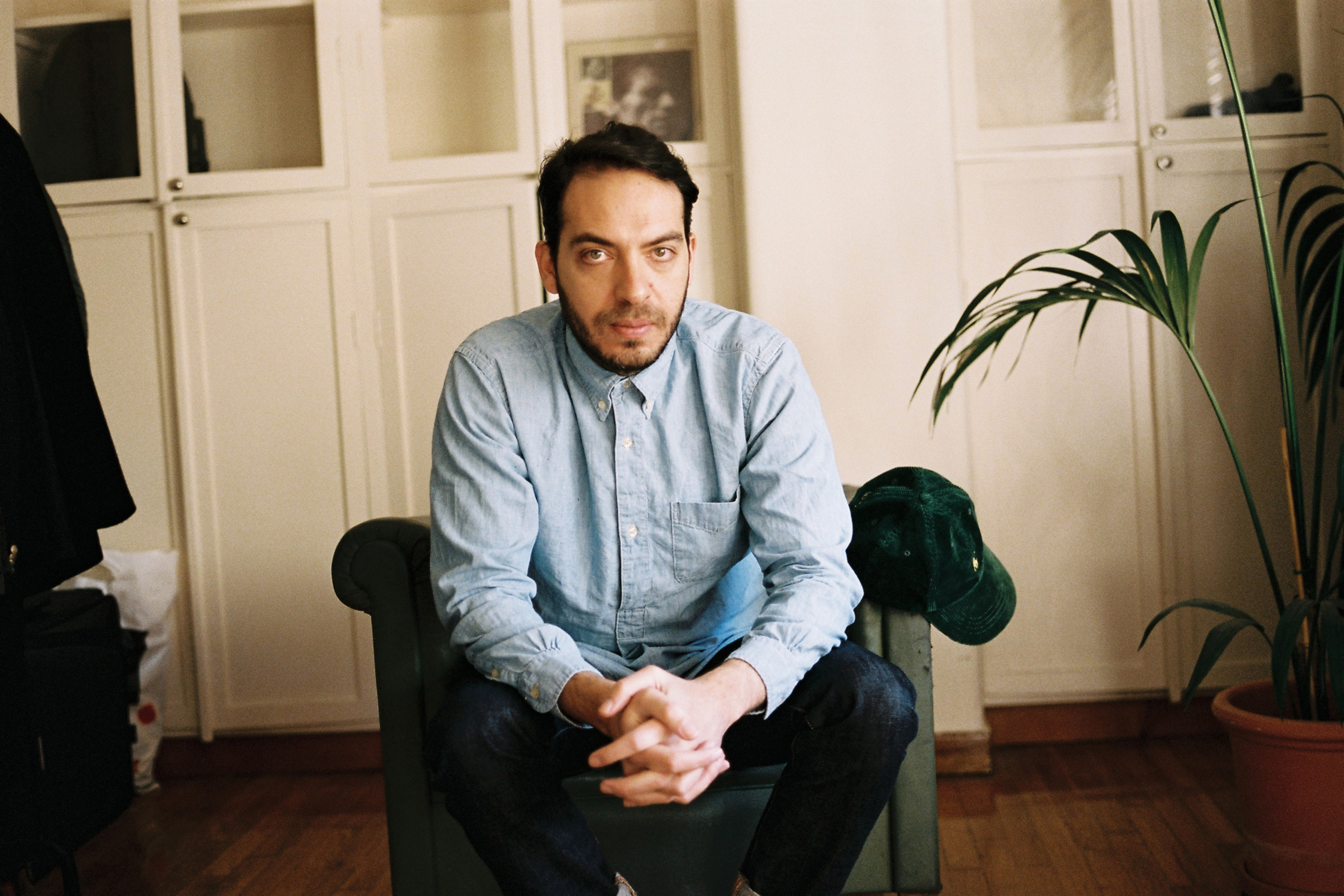
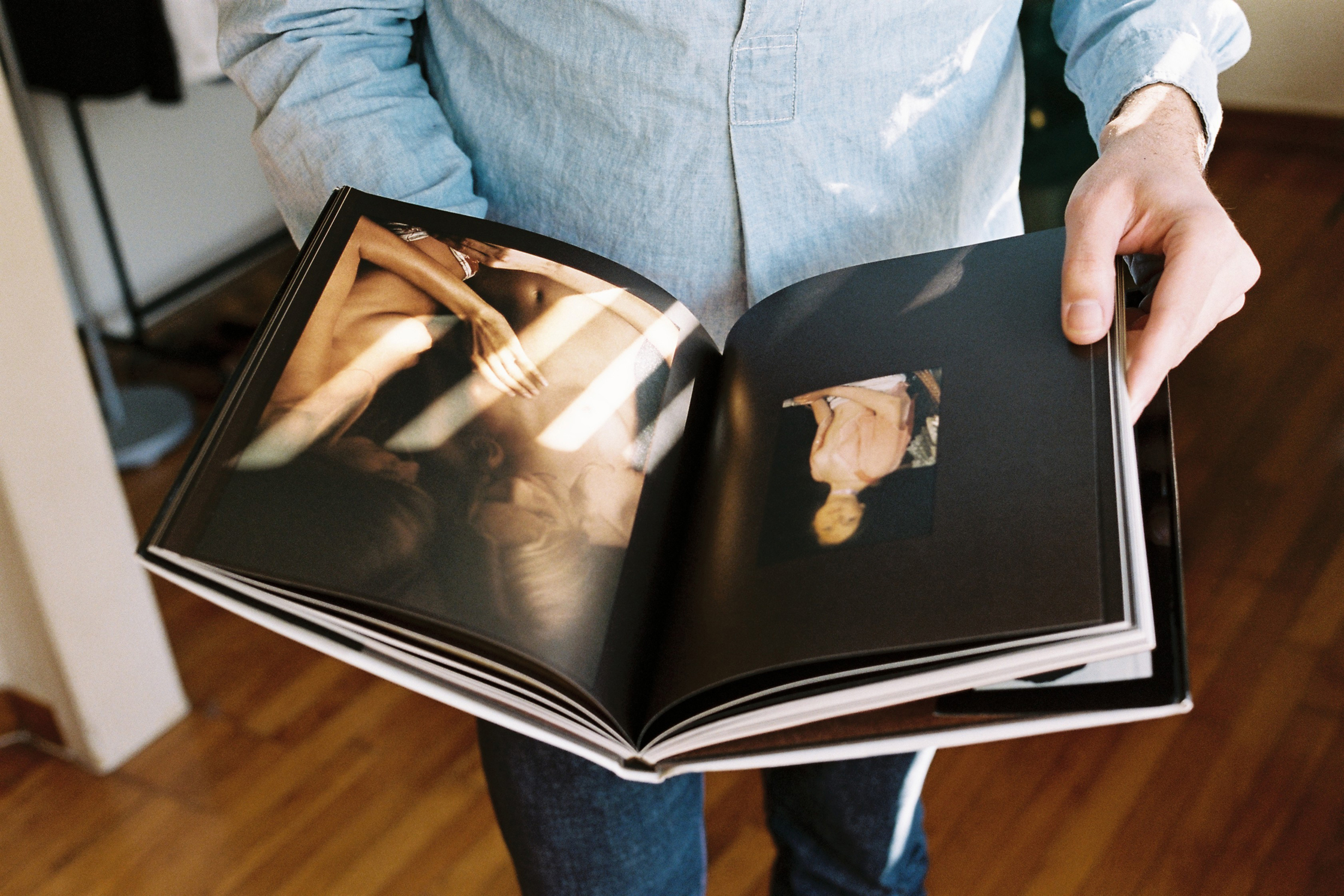
Healthy obsessions, as I found out later on, are all around Chris’ life, perched in shelves, recurrent in discussions, referenced through cinematic works or displayed behind glass in an almost venerable manner. From Japanese records and photography books to finely tailored garments and soundsystems, the items found while rummaging around his flat give a clearer idea of the owner’s personality and polymathic nature. Through Chris’ words and concepts, seemingly unrelated objects and obsessions procure homogenous qualities and form clusters that eventually make sense. Like liquid blobs on a surface who, with a little help, meet each other and meld into one pond. Besides being a publisher, Chris is also a photographer and DJ with a strong sense of curiosity that binds all the loose ends together. “I could not easily place myself under one flag. I guess a common ground for all my practices is a rather constant pursuit of aesthetic pleasure. To borrow a line from one of my absolute favorite books, Donna Tartt’s Secret History: ‘A morbid longing for the picturesque at all costs.’ – but not taken to that excess, of course.”
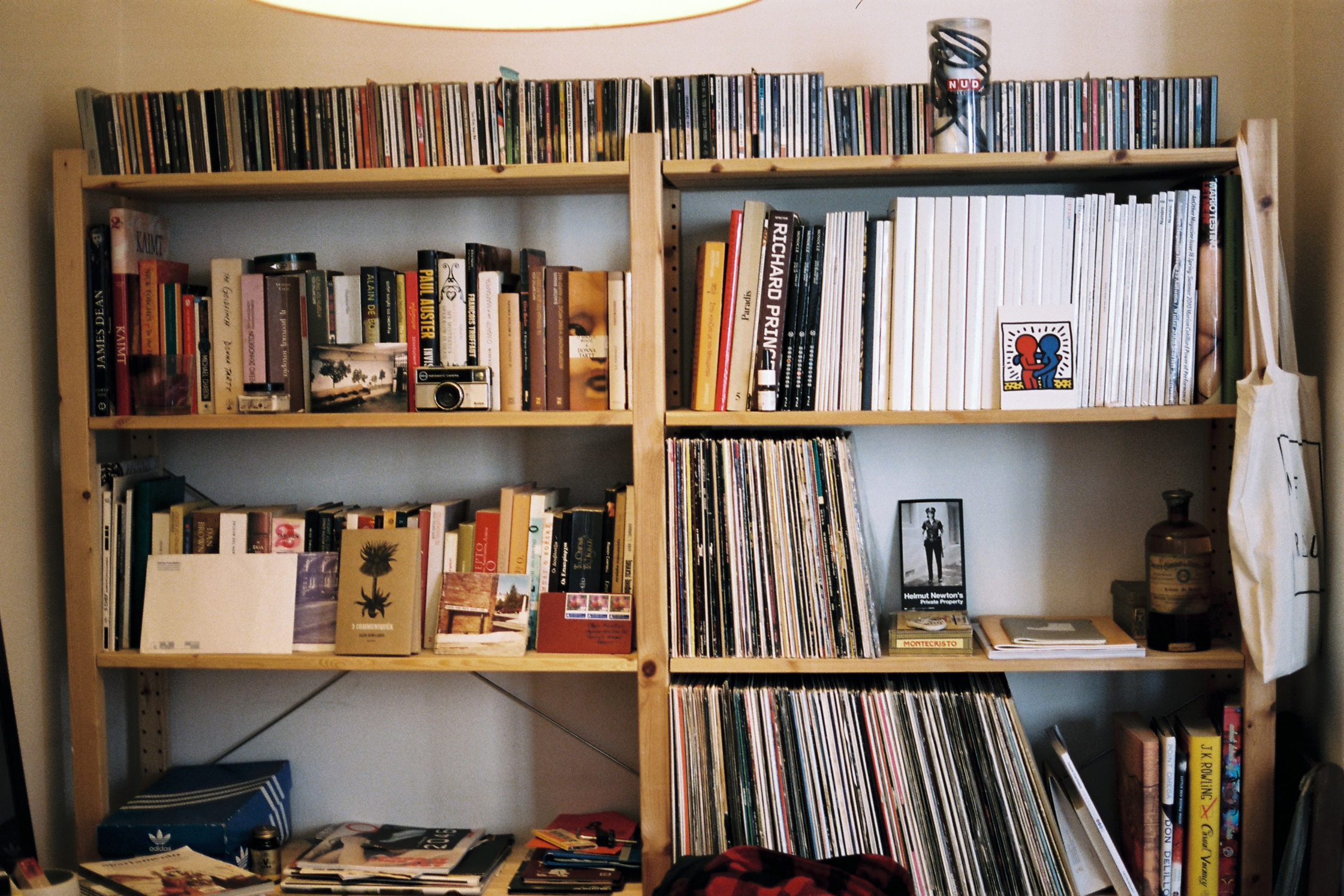
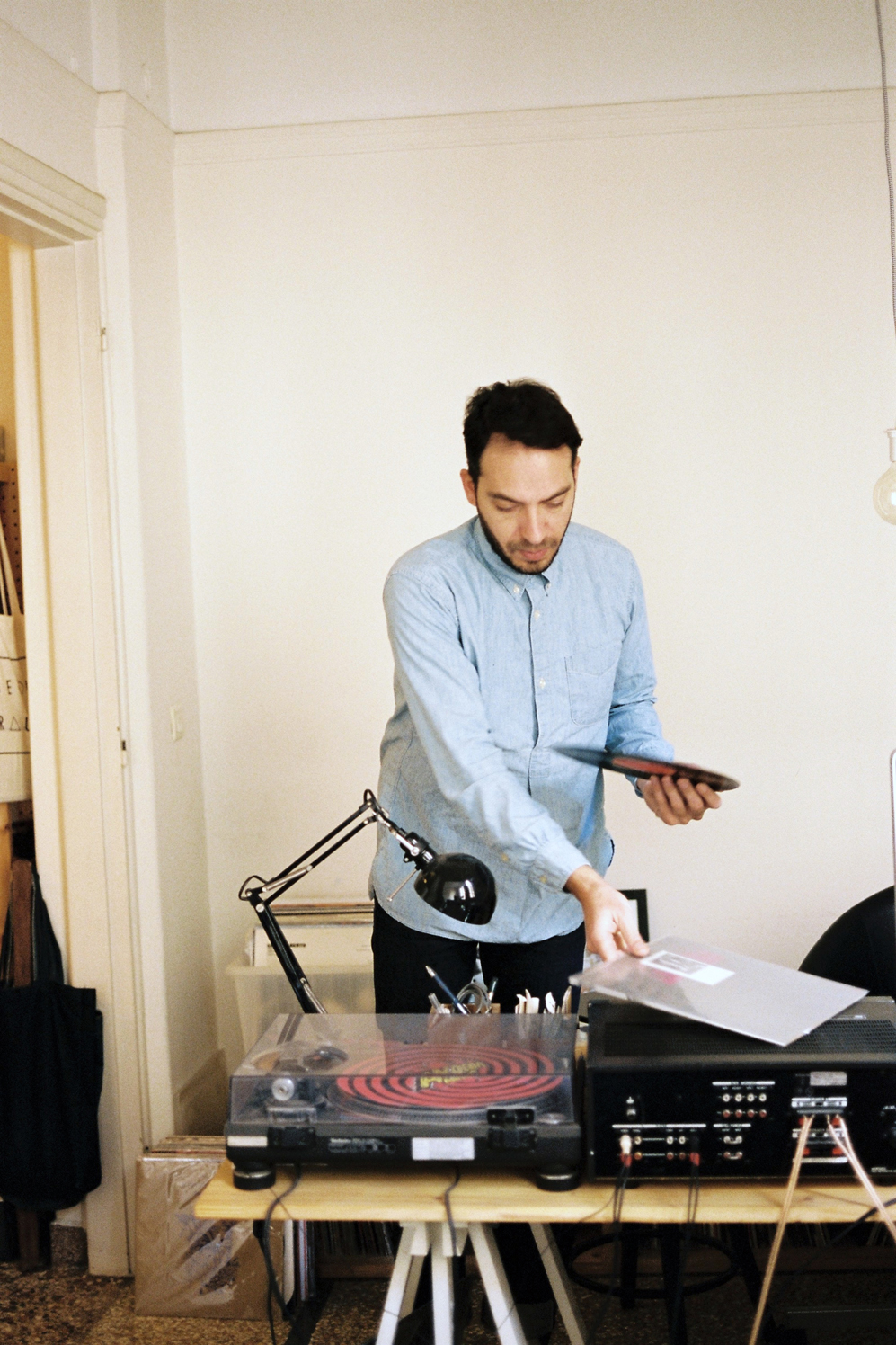
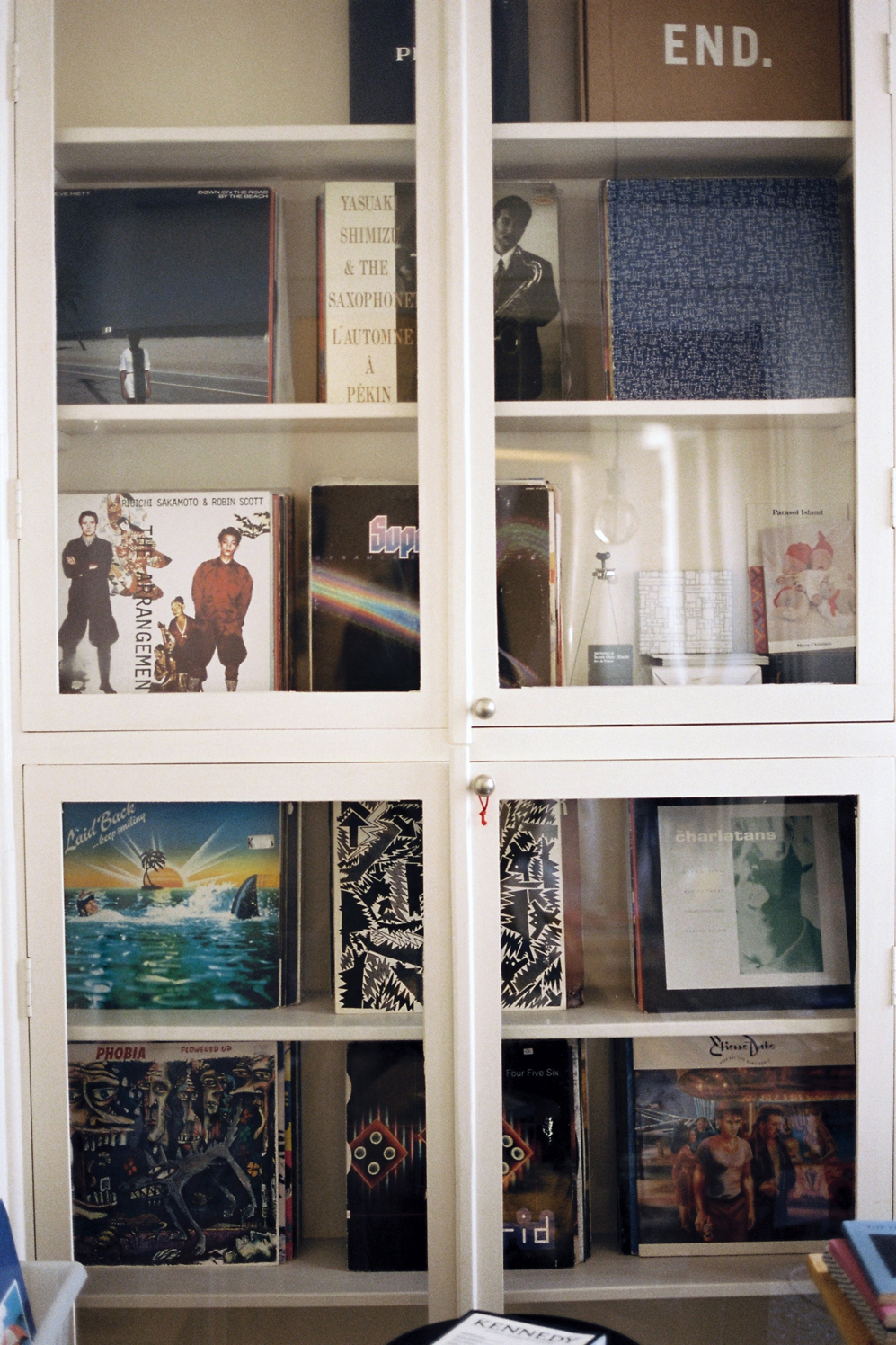
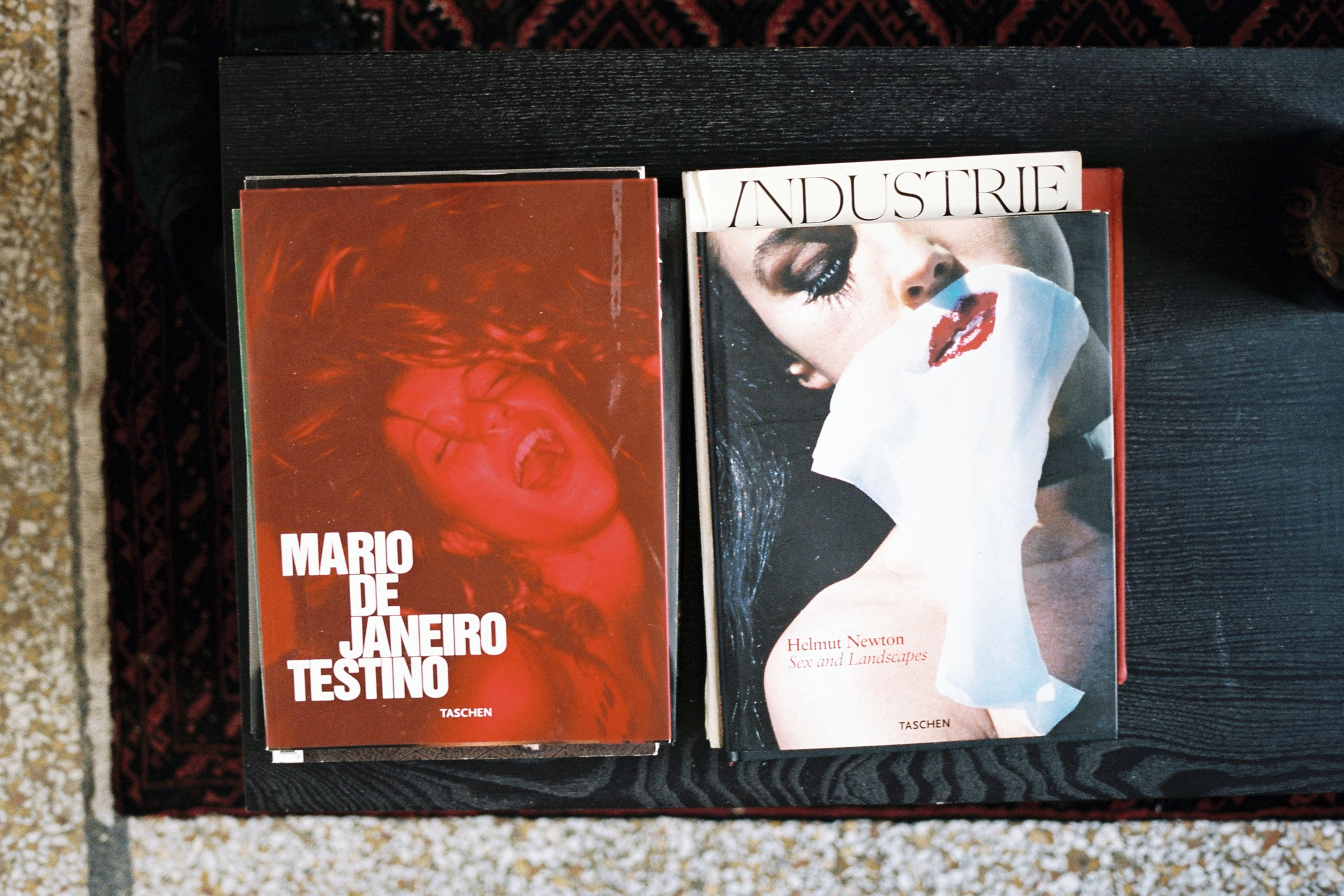
This strong urge is also the locomotive power within the magazine that has led him to adopt a Gonzo type of approach; celebratory of experiences, chance encounters and human interaction. “I’m not a beatnik, nor have I that kind of inquietude but I do relate to that mentality up to a certain level. That was the idea behind the magazine in the first place. We work like amateurs, in a way, chasing after people we really want to meet and wandering around different places – this is what makes the whole thing special. You don’t understand, I’m a commando! When I want to meet someone I make it happen. That’s how I got to meet the film director Whit Stillman. I heard he was going to be at the Athens Film Festival and managed to convince one of the festival’s volunteers to add my name to the list of people Whit was scheduled to meet after his film’s premiere. We ended up chatting over whiskeys and shooting photos in the city; now, that was pretty incredible.” Meeting your idol, while dragging a package of expectations, can be quite daunting and even predestined for disappointment. However, Chris was quick to say the opposite: “I’ve also thought of that but, nowadays, I’ve changed my mind. When I interviewed Andrew Weatherall, for example, I had one of the most interesting discussions of my life. It even transcended the ideal notion I had in my head. I don’t know, I think when you truly admire someone there has to be a deeper reason in the end. In a sense, it’s kind of hard and unlikely for them to turn out to be assholes. I don’t feel that way.”
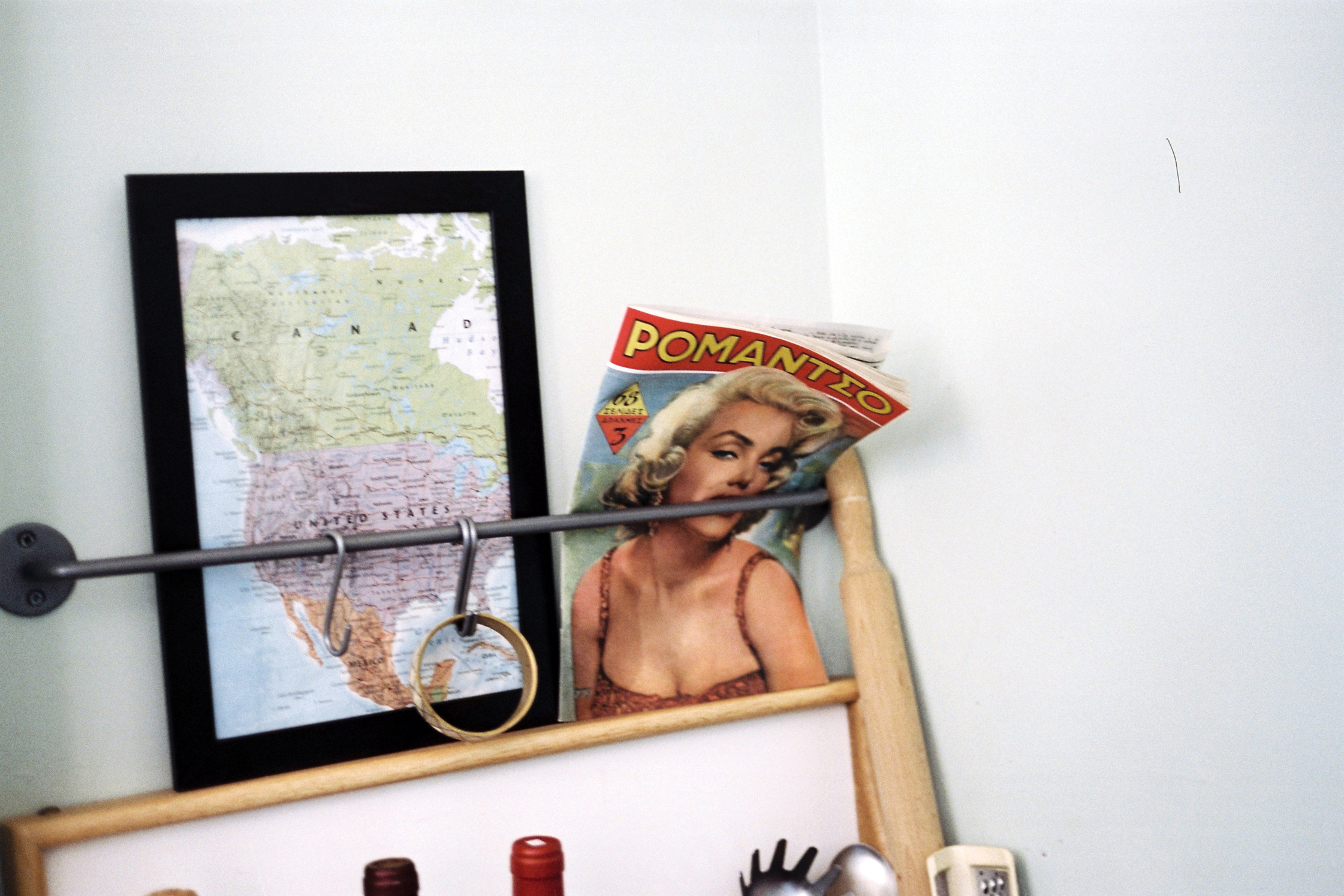
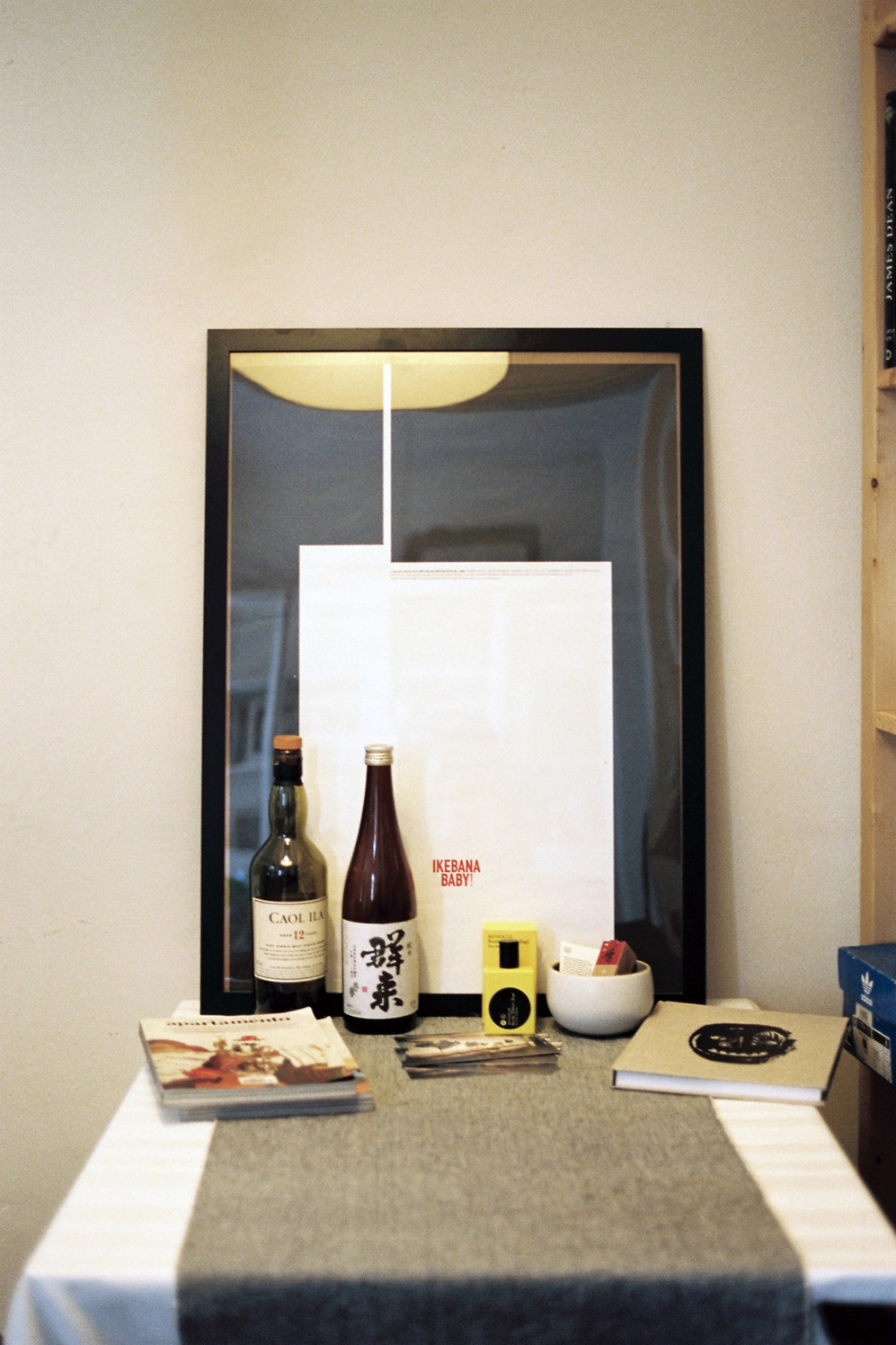
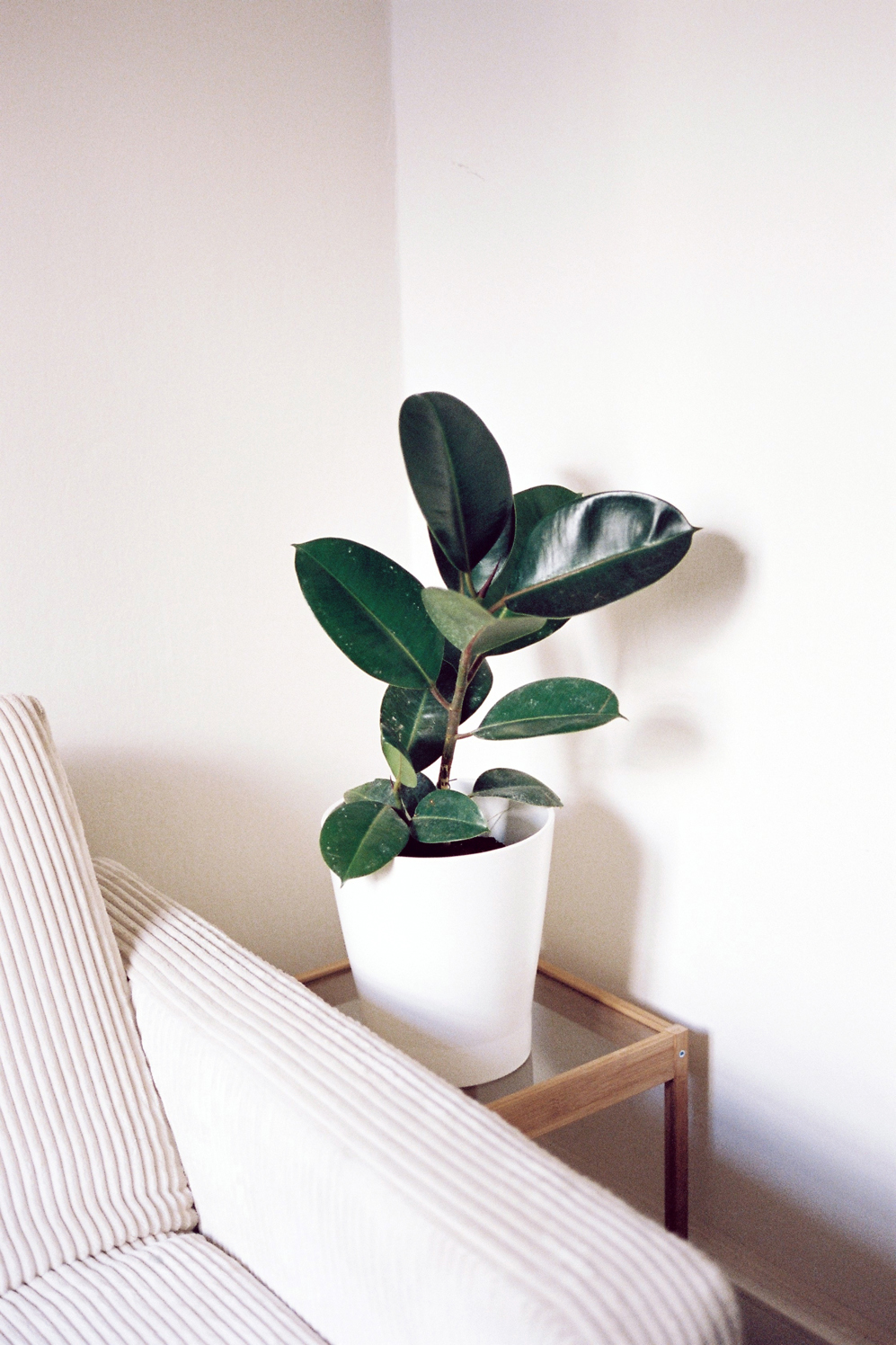
As the discussion progresses, the idea of the flat being a world of its own, as Chris mentioned, becomes more discernible. “I’m a person who enjoys solitude. I’m lucky enough to live in a house that is like an island. At least in the way an island can be remote yet accessible. It’s situated in the most central part of Athens but it manages to be a secret place somehow, away from the surrounding madness. As you can imagine it’s quite intriguing living in such a hidden place. It offers exactly the atmosphere and solitude I need to think and create. I guess isolation was always a thing for me because most of the times I find it hard to blend in with crowds. I function better in small groups of certain individuals or on my own. Especially after I started working on the magazine, I realized spending time in a quiet place like my flat was part of my whole creative thinking. Another reason, I guess, is that Athens never provides enough stimulation for my imagination, so here I have the space to recreate my own worlds.”
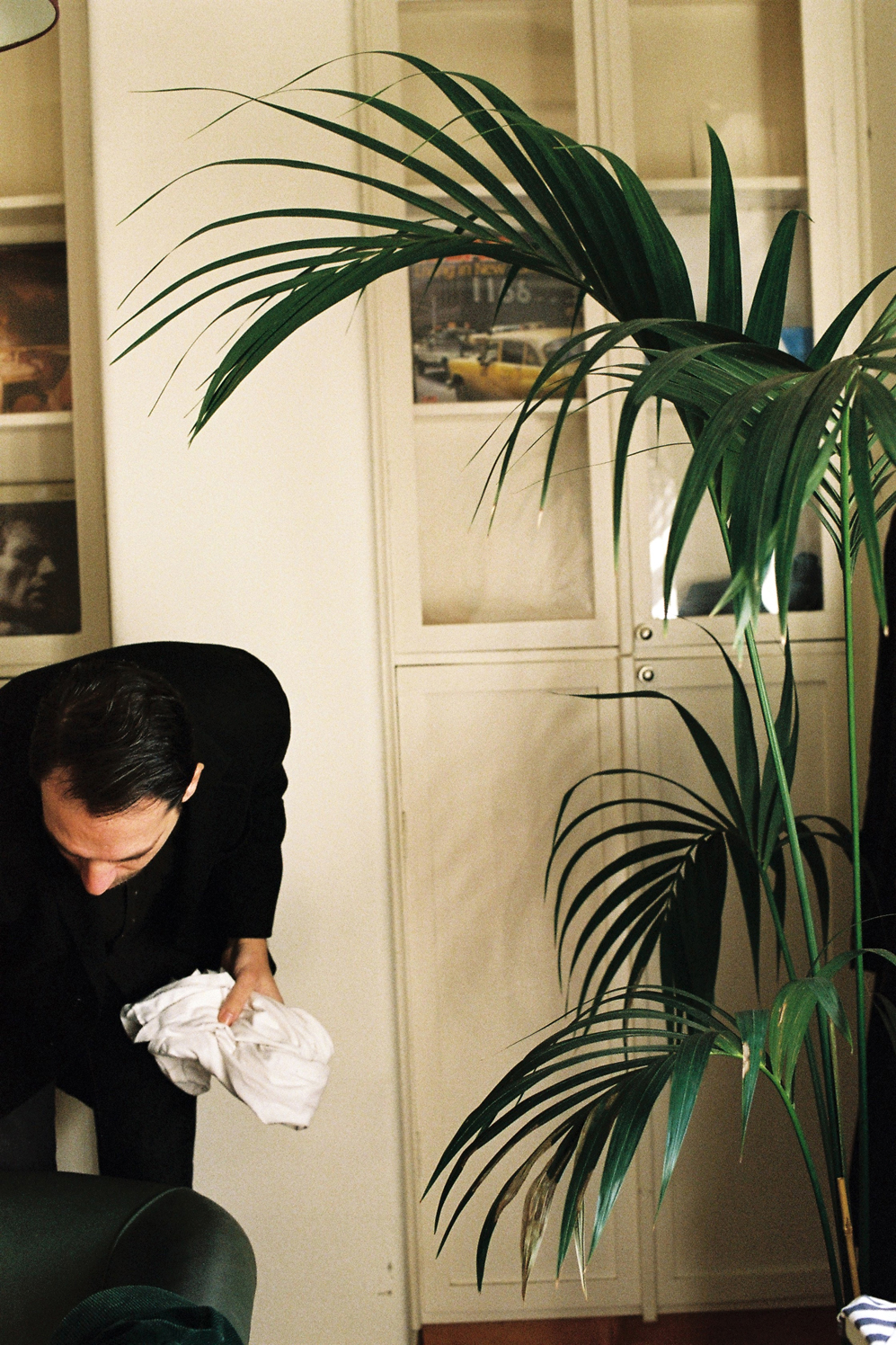
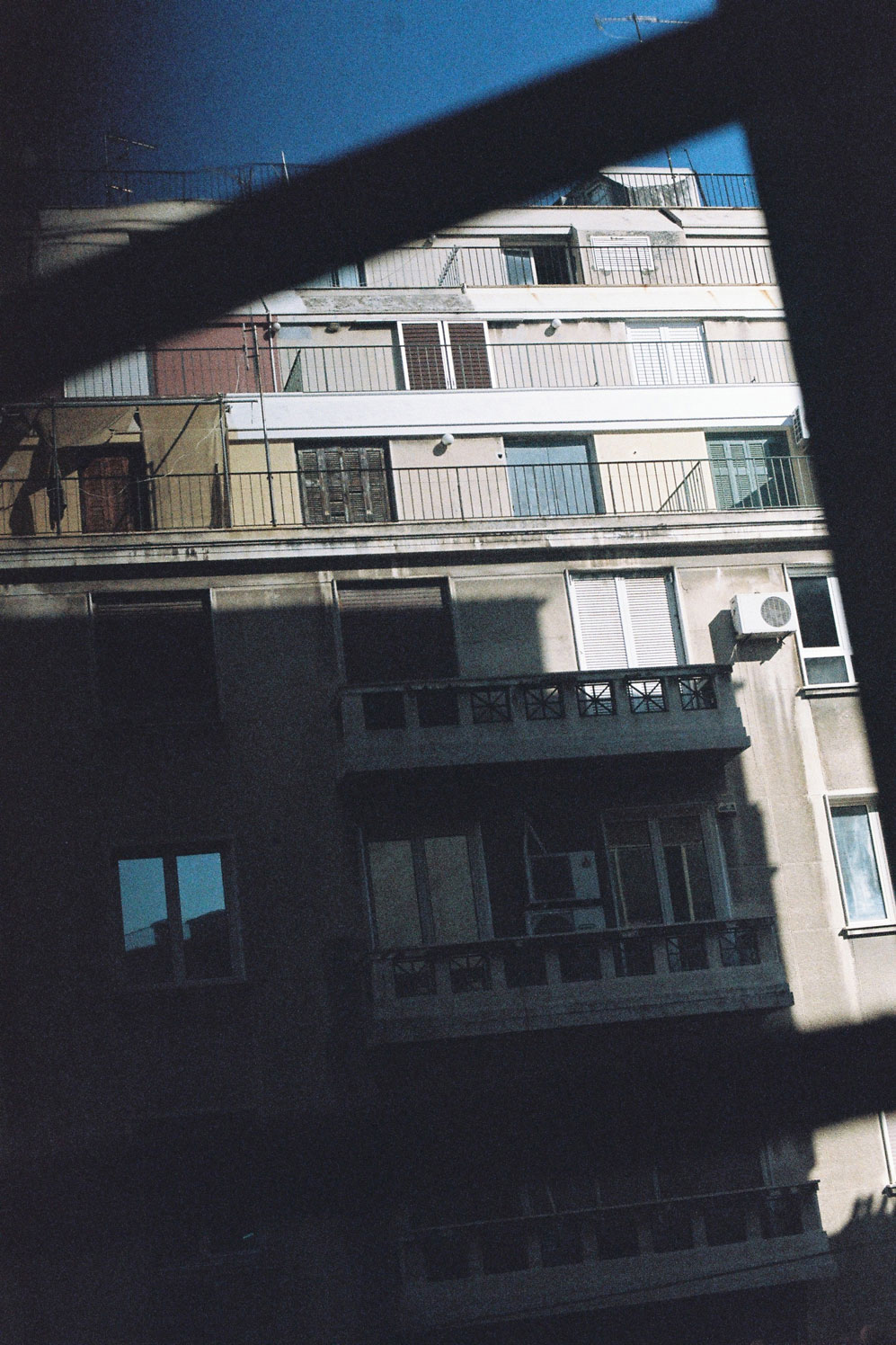
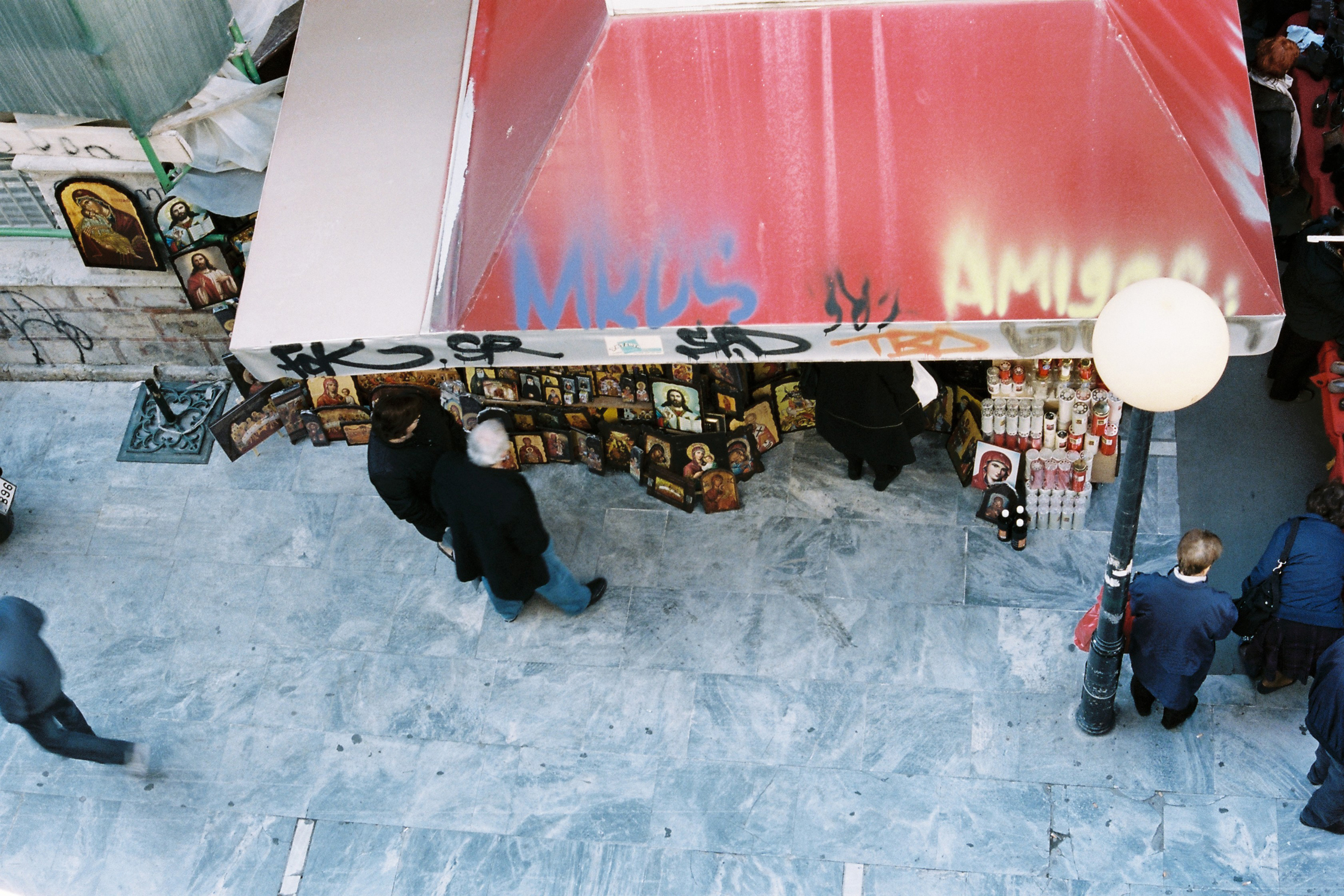
Dedicating time to being alone is considered a mastery and an ability not many possess. “I think being alone is a craft. And to really own it, you have to try hard. You have to keep the noise away and enjoy spending time with yourself even when there is nothing particularly interesting or productive to keep you going. I think it takes more guts to enjoy nothingness more than anything else, really. People pretend to work most of the time but they don’t. If you ask anyone these days, they are like ‘’Oh I’m so busy, I’m working on my projects!’’ It’s like seeing all these people with laptops in hotel lobbies – I always wonder what they’re working on! I certainly believe that time spent doing nothing is not wasted. In that sense, I don’t sacrifice my right to idleness.”
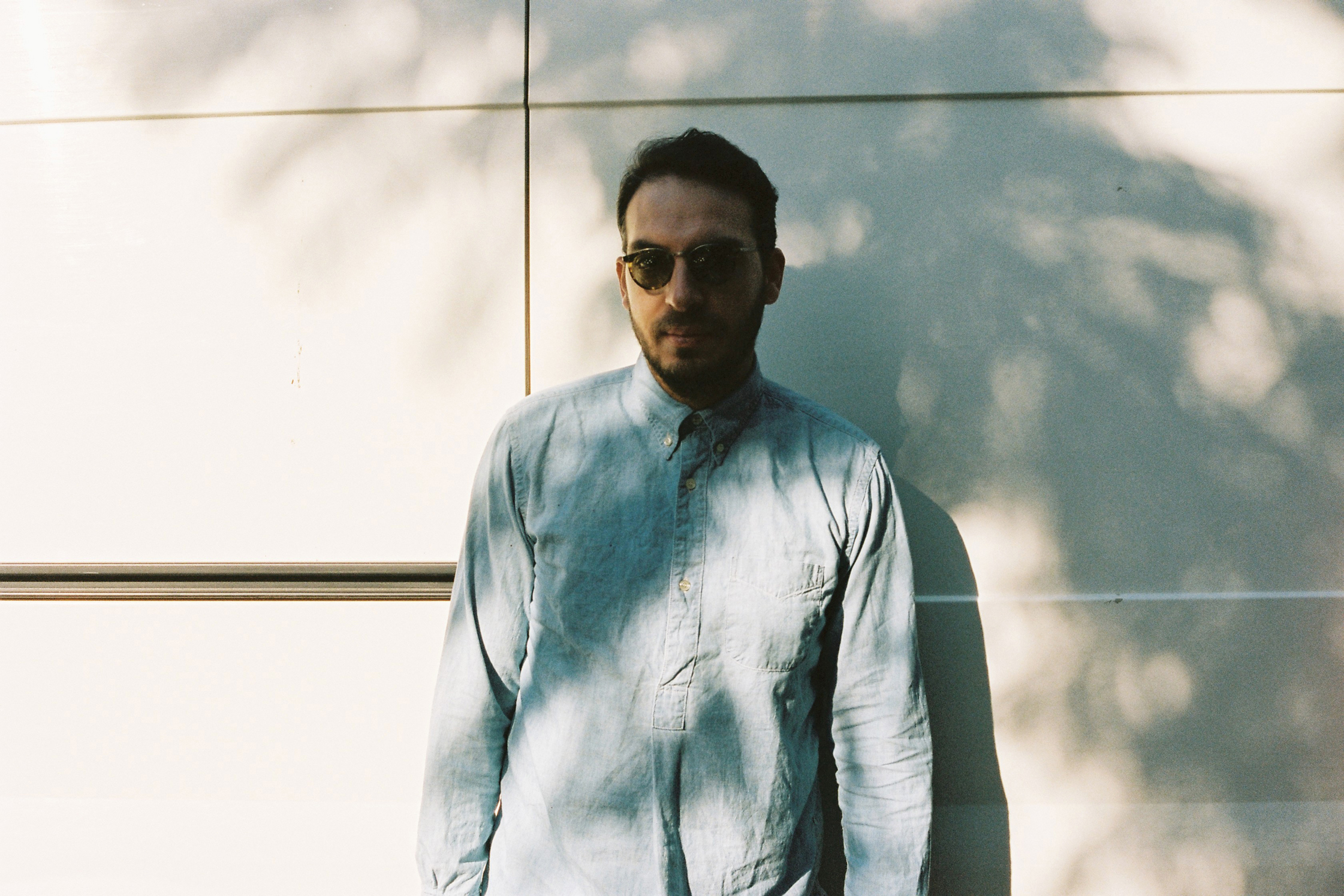
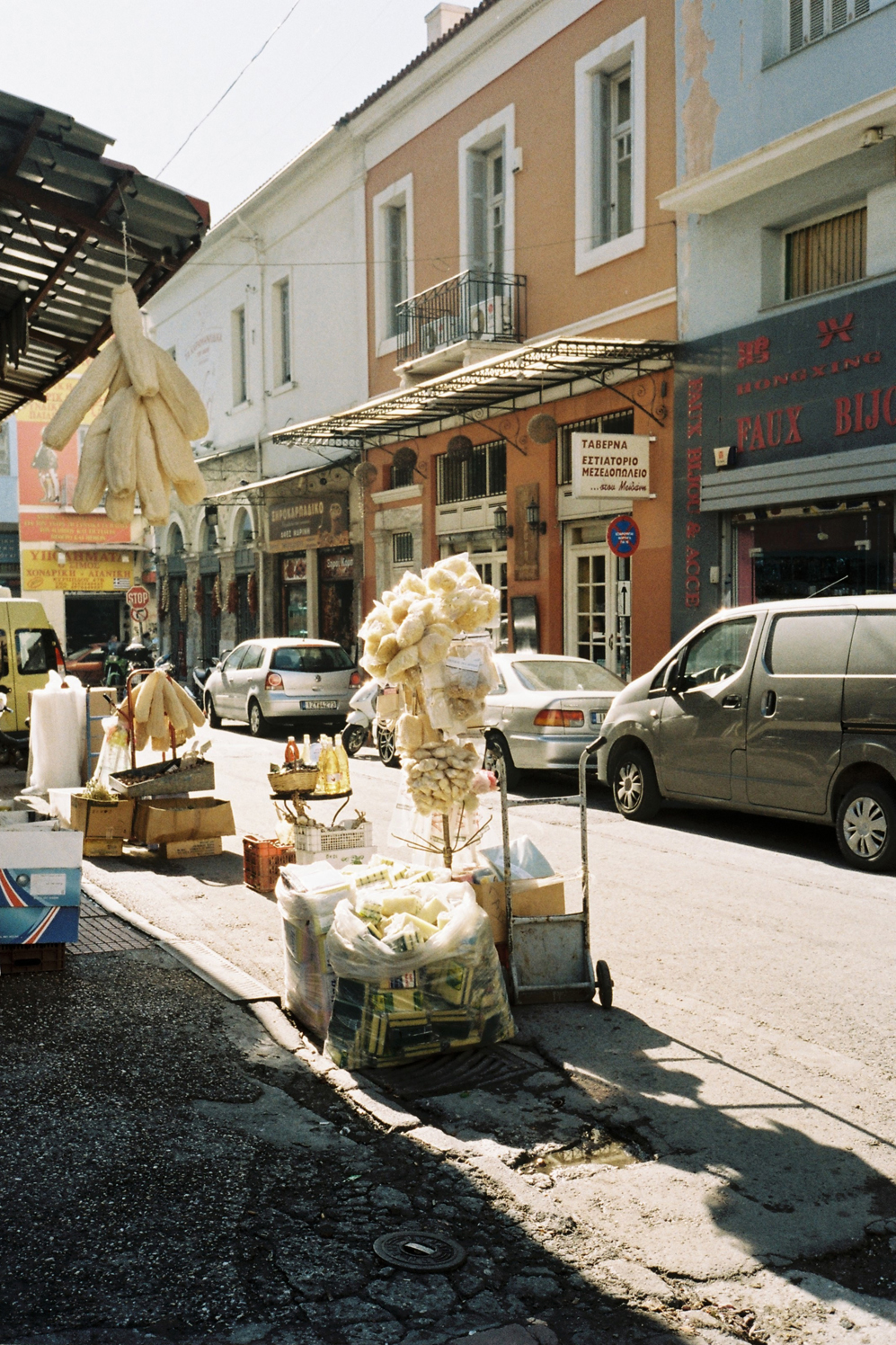
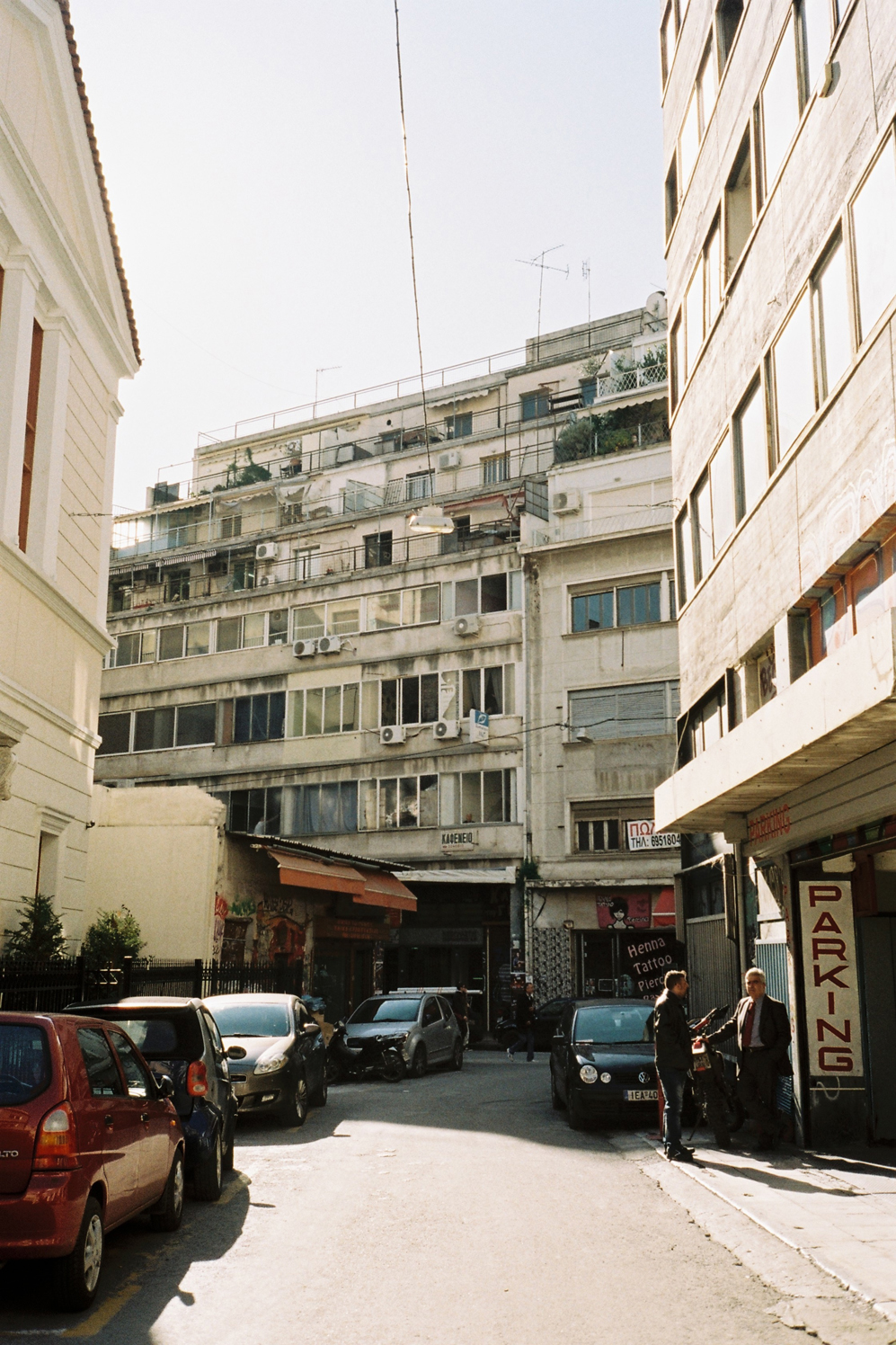
Contrary to the solitary hermetic side, there’s another part of Chris that’s quite outgoing, keen for interaction and explorations. “Taking into account the fact that human life is quite short, a way of extending its quality is traveling. I feel the more you get to see, the more people you get to meet and the longer you live through them. I remember a funny quote by an Australian artist I love, Reg Mombassa – he said he never travels much because since it’s impossible to see all the places he desires in one lifetime he’d rather see none of them at all. I’m definitely opposed to that statement. Traveling for me is a leash of new life. Athens, no matter how much I might love it, is like a trap most of the times; a place that doesn’t give me enough space to breathe. Athens tends to feel suburban, and, despite the healing sun, sometimes seems like a forlorn and dusty place where nothing ever happens. In Athens, I feel a little bit like a fish out of the water that has somehow managed to breath on dry land. I guess I might be a modern-day nomad in a sense. I always have my doubts about living in Athens and I’m trying hard to realize if being constantly on the move is a sustainable way of living. I mean it feels like running away from something sometimes. Like a prolonged puberty period.” Chris said that with a glimmer of Holden Caulfield-ness in his eye.
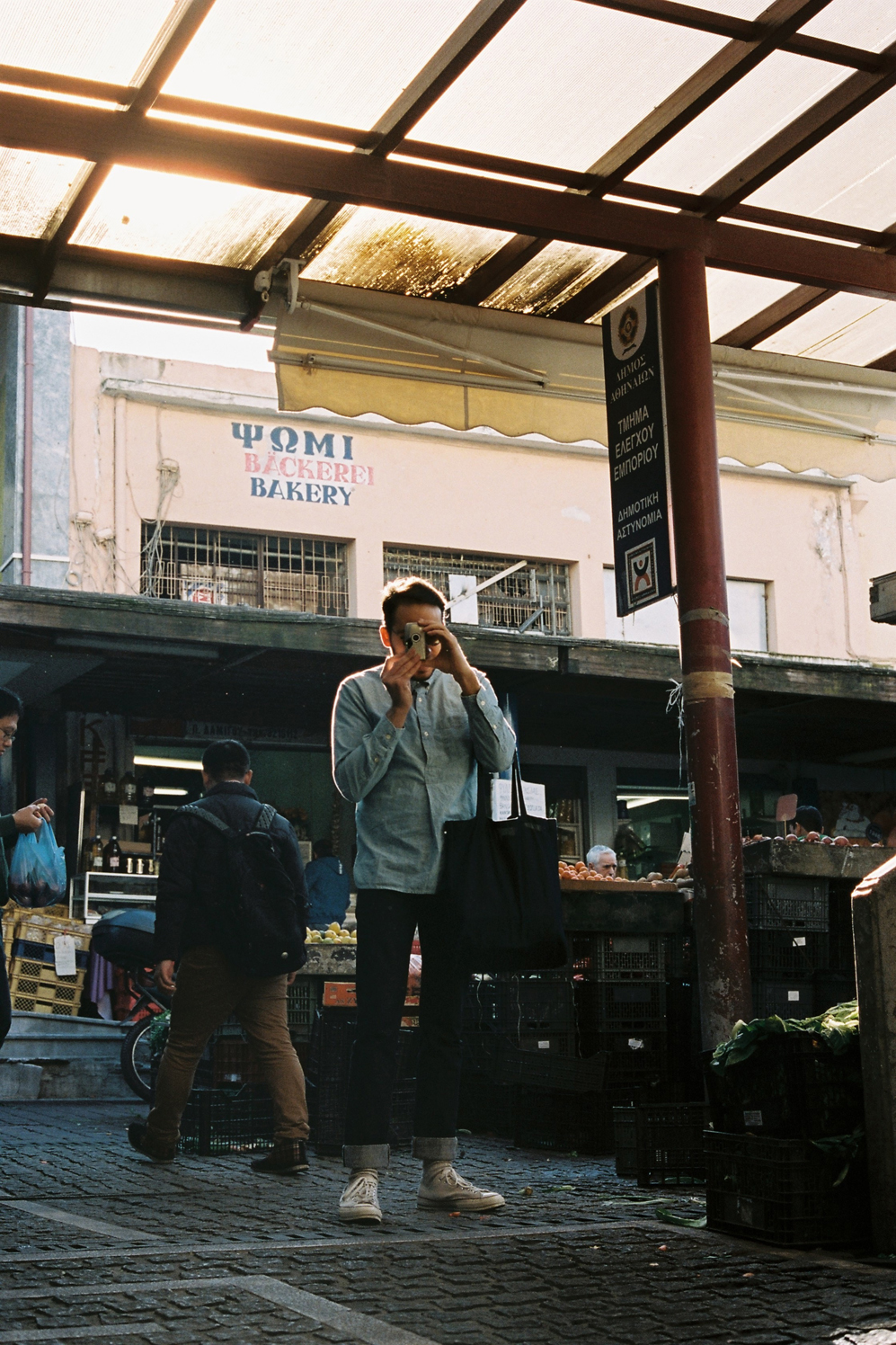
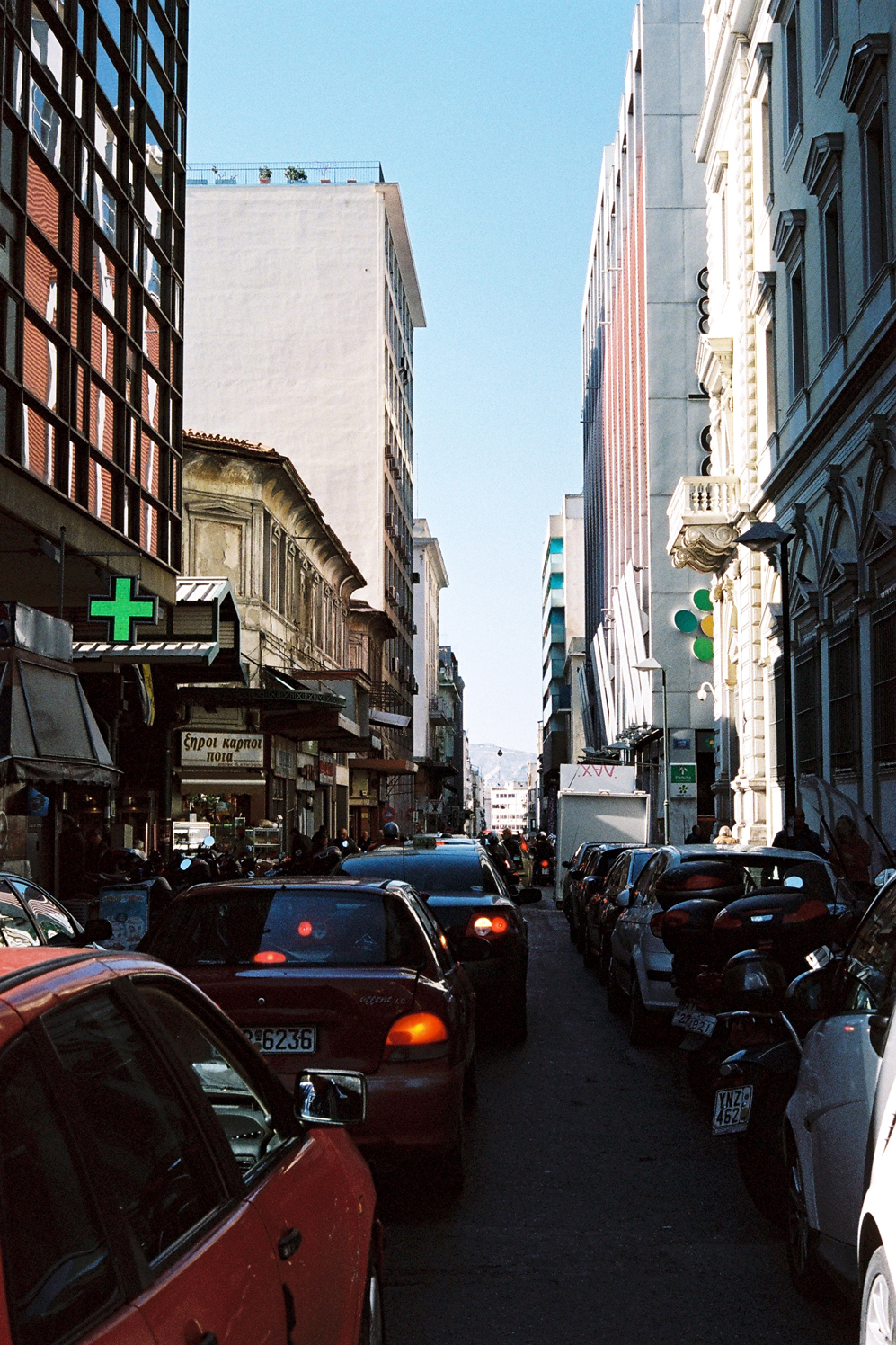
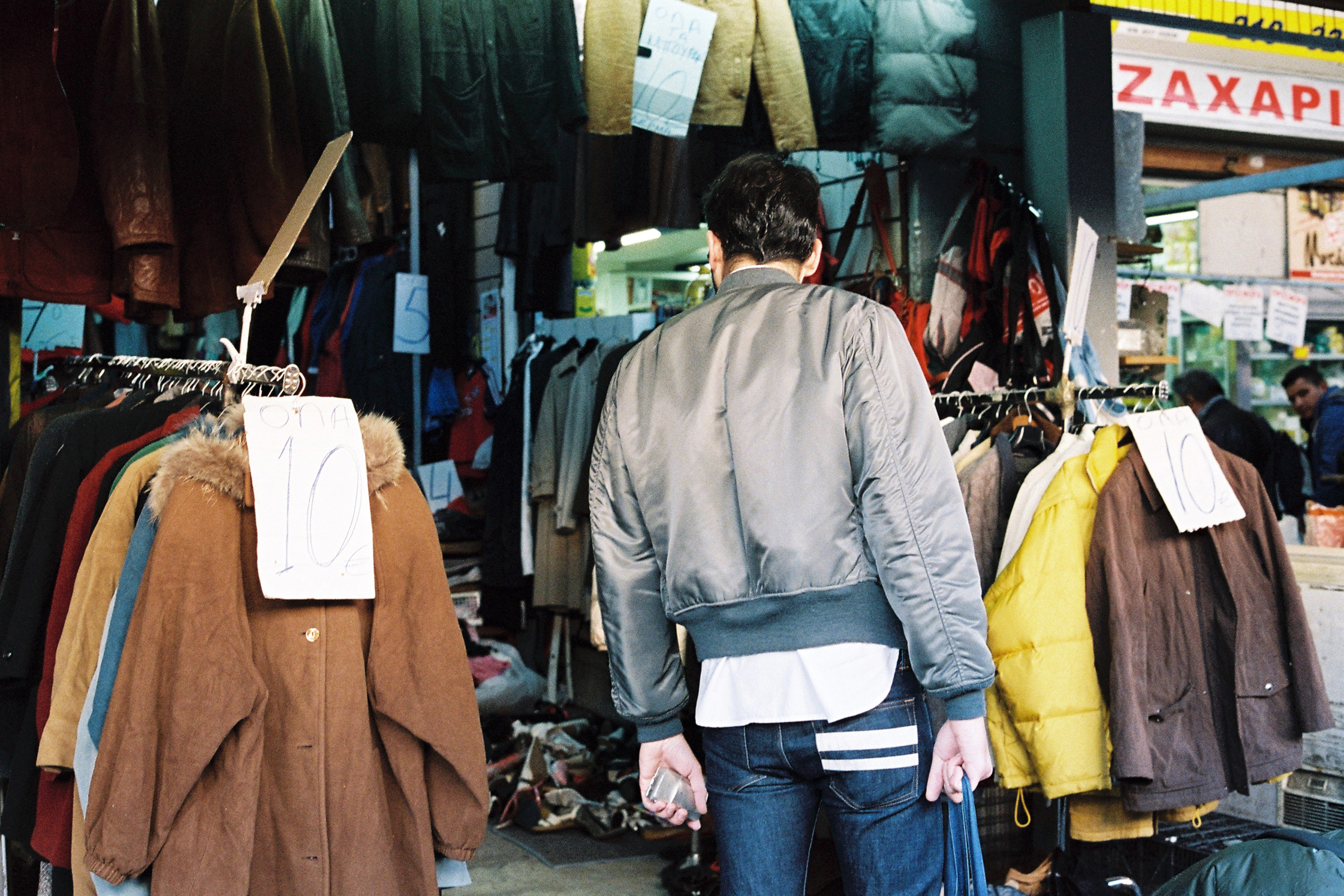
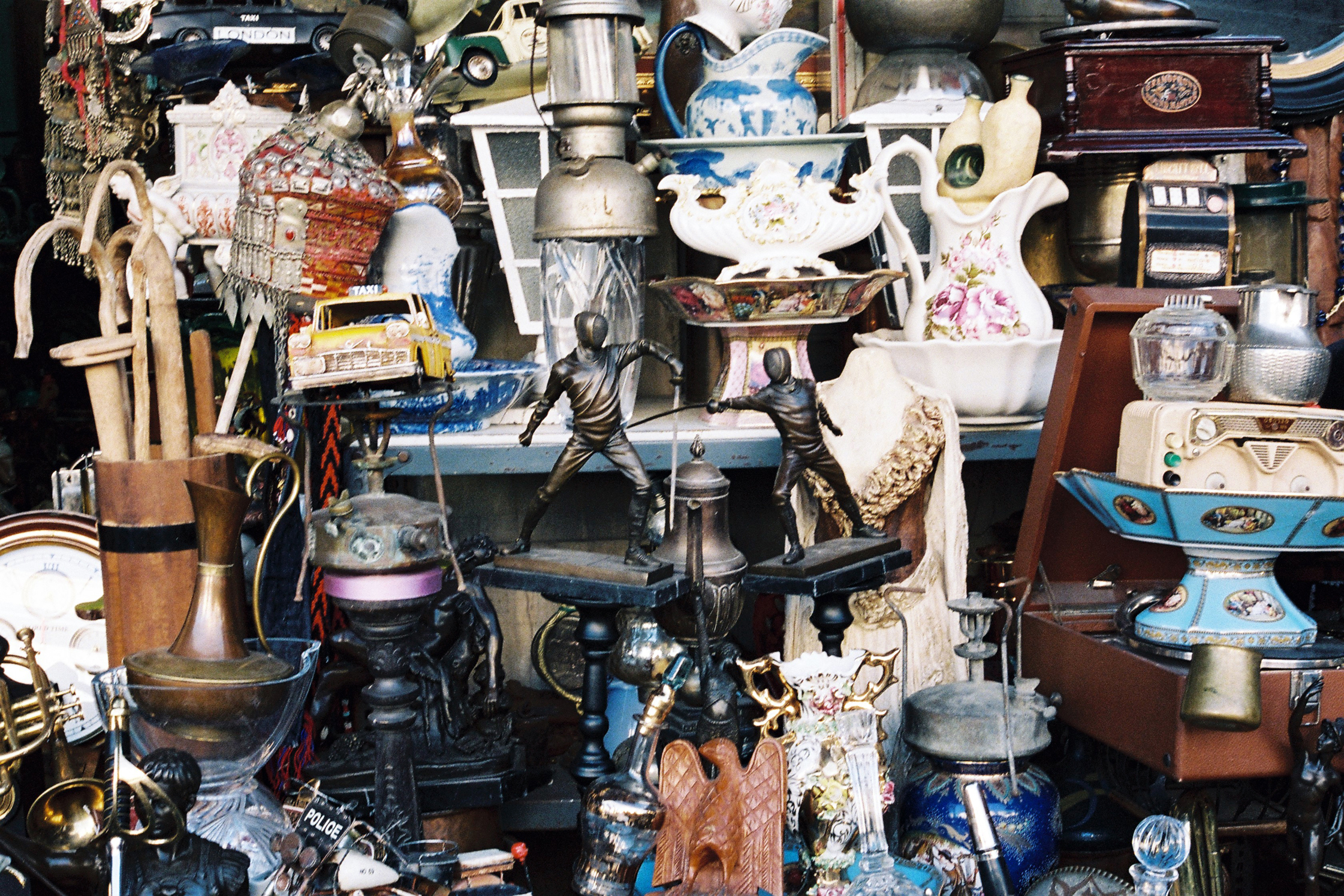
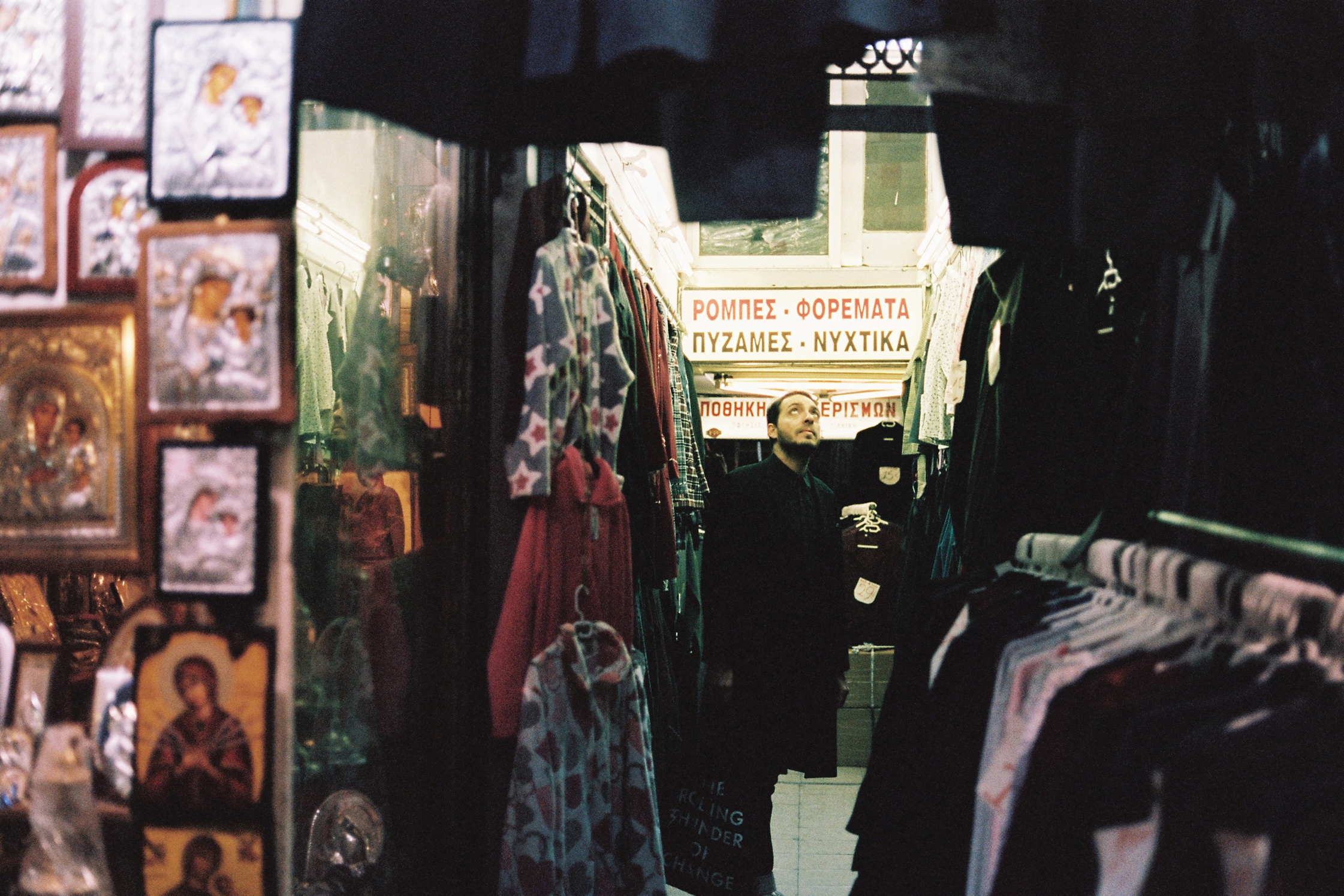
One of the cities that has really stayed with him from all his travels is LA for which he created a photographic ode of sorts capturing elusive moments in non-places. “It’s one of the few places that I could call home. A place that filled me with a sense of belonging. Really few places are so inviting in such a subtle way as LA. It’s warm in every sense. I was crying when I had to take a flight back home the first time. It’s incredible, so open, sky everywhere, low buildings – your eyes can peer far into the distance. Everything looks familiar in that place even if you’ve never been there in your life, due to all the cinematic influences and visuals that have permeated our memories. It’s exactly like we know it from movies; highways, openness and the ocean. It brings out a palpable sense of nostalgia.”
Upon examining Chris’ creative work, the concept of nostalgia seems more and more prominent. “I think that makes me a person that dwells in the past too much. Sometimes I feel like I’m living more through my memories than anything else. We always seek that ultimate thing, that mythology we’ve compulsively synthesized in our brains. I guess that is the wrong way to live. I tend to do it a lot and I always try to see that embracing the present is the better option. It’s no news, but it’s true that sometimes we don’t realize how good the moment is unless it lies in the past. However, I think the gentrification of things got a lot of people diving more and more into a shock of nostalgia.”
While flicking through his photography books, it’s obvious that Chris is drawn to cinematic aesthetics: “Compared to cinema, I feel like photography is kind of a crippled friend. I always found the cinematic feel of Lorca DiCorcia or Harry Gruyaert more relevant than anything to motion pictures. With my photos, I always wanted to create a certain atmosphere in the same way a director would. I usually want them to lack definition of time and place. I try to take photos that lack crowds and prefer to imply human presence in other ways. I find anything else outside of that to be distractive. Emotion through the mundane. And, once again, a note of nostalgia.”
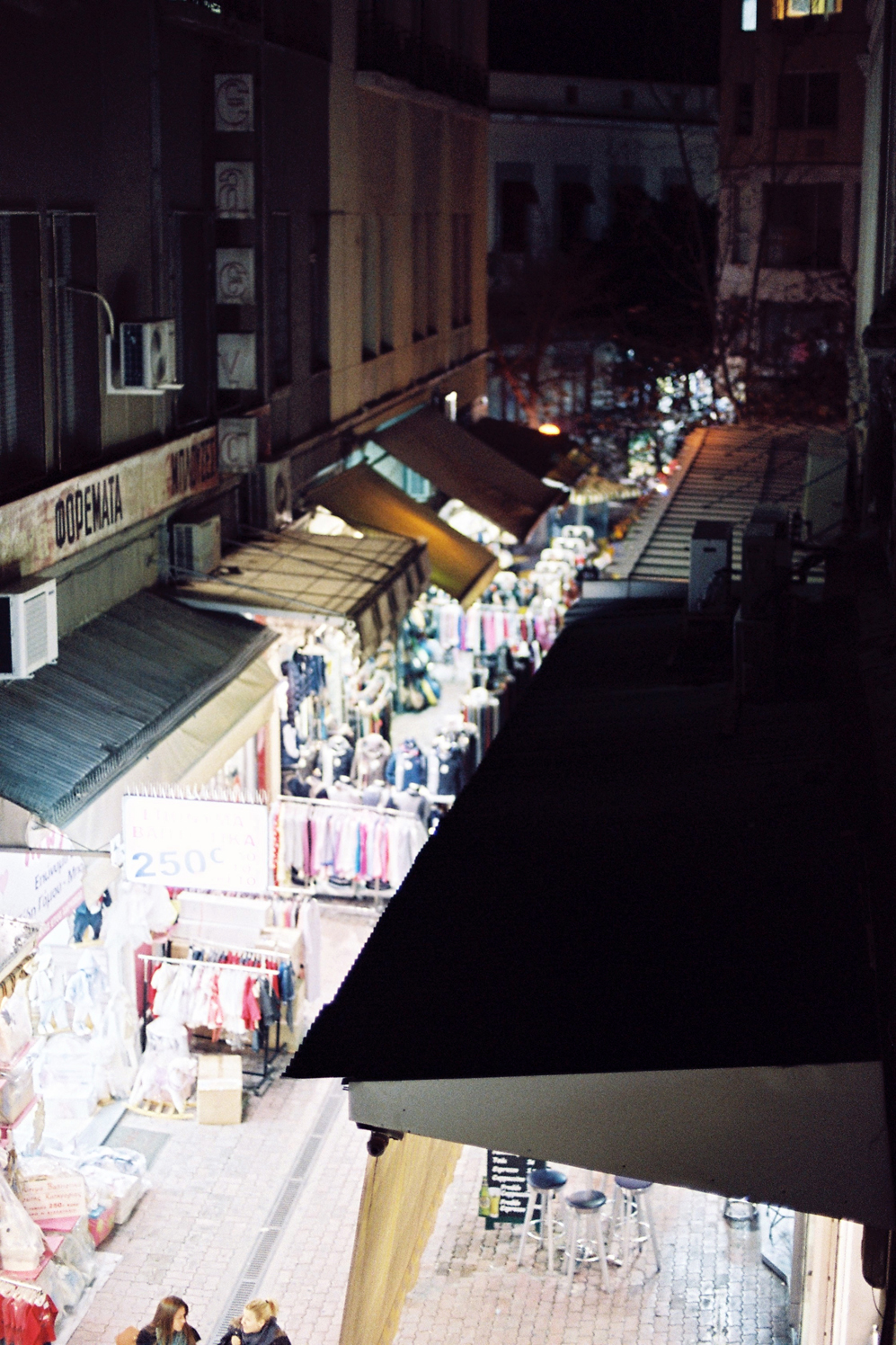
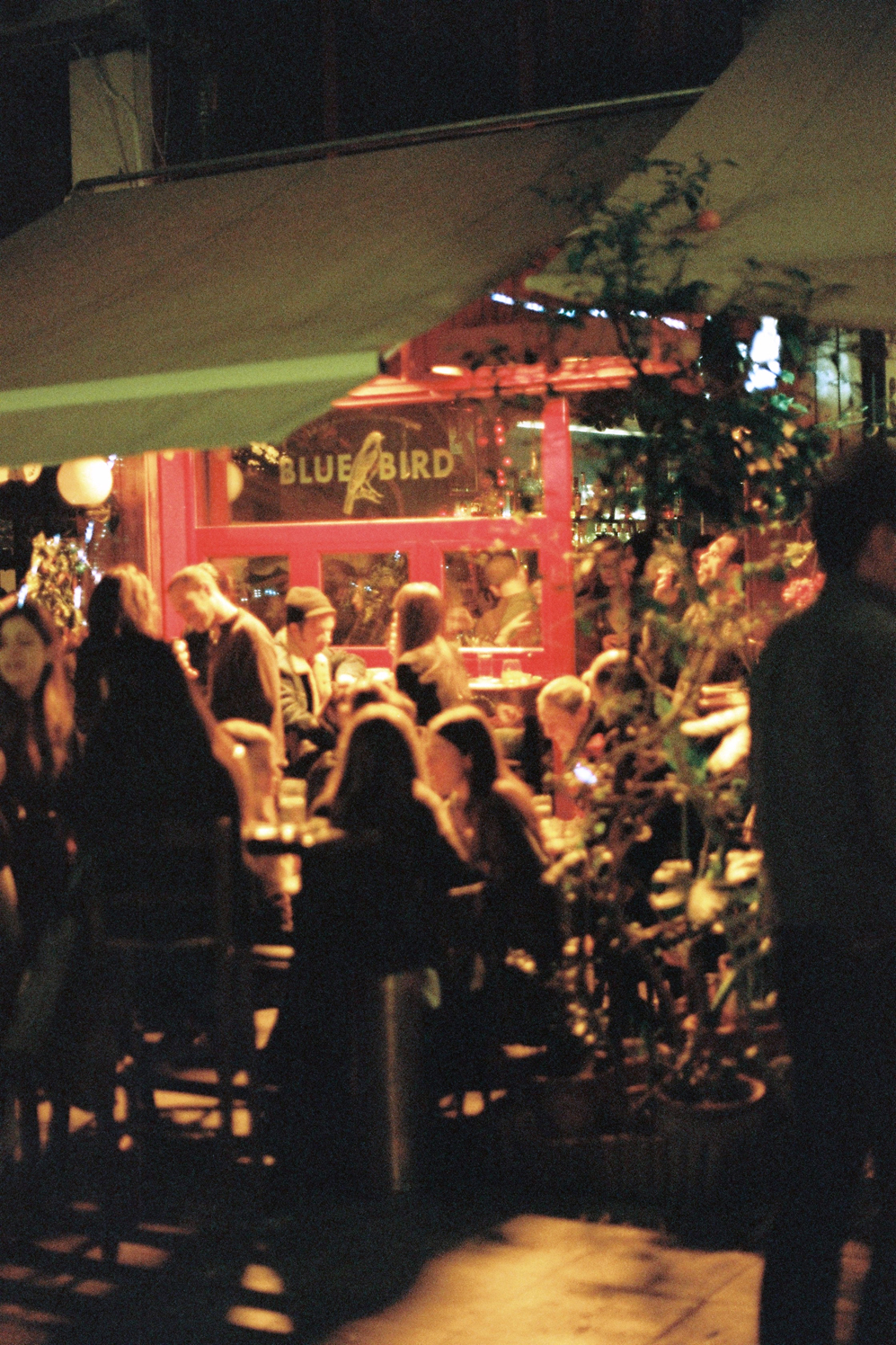
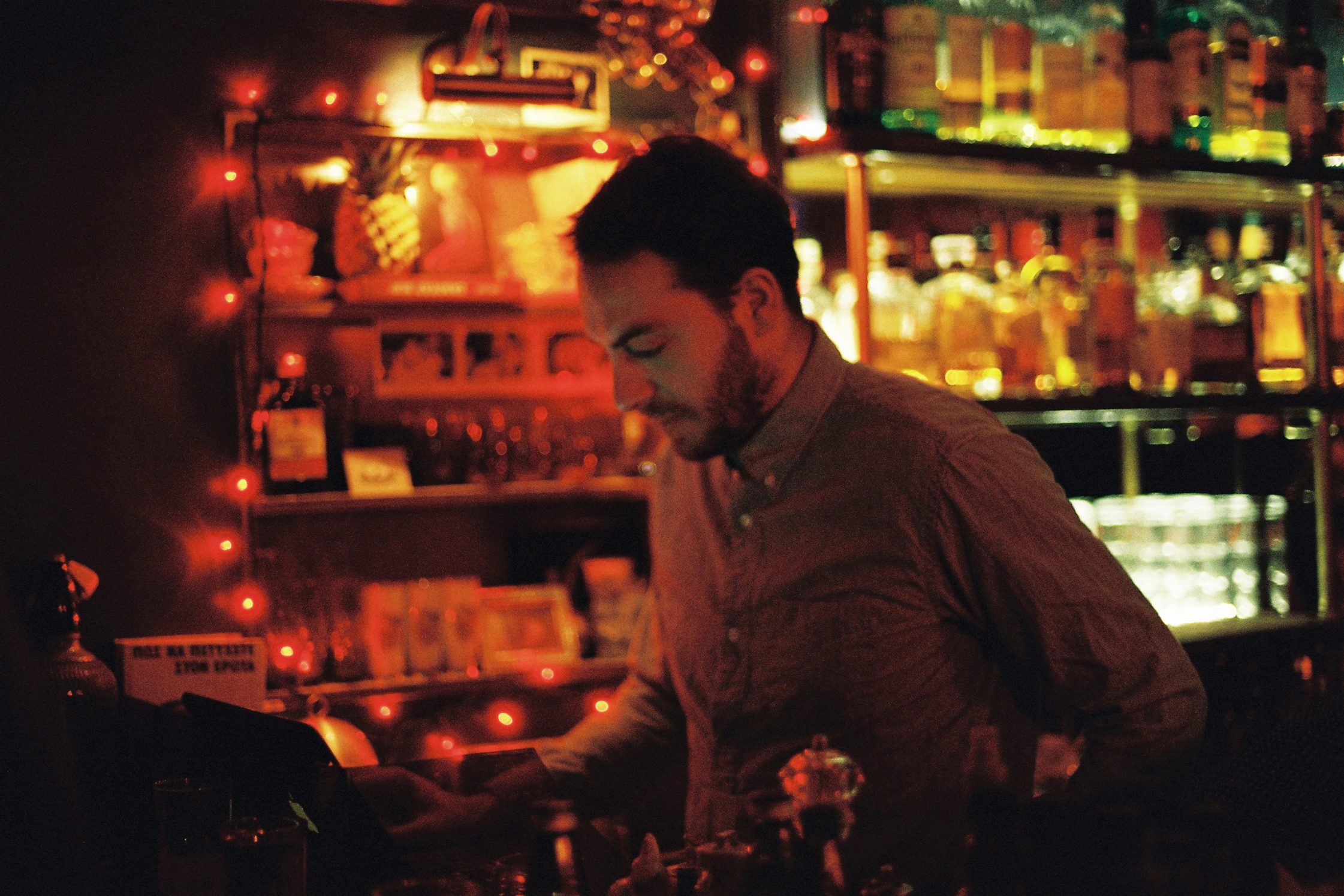
Before leaving, Chris offered to play a track from one of his rare records. It went like this…
Chris, thanks for this great chat and for showing us around your well-hidden flat.
Adrianna, the photographer, shot this story over the course of three days with her friend Chris in Athens.
Photography: Adrianna Glaviano
Interview & Text: Effie Efthymiadi
